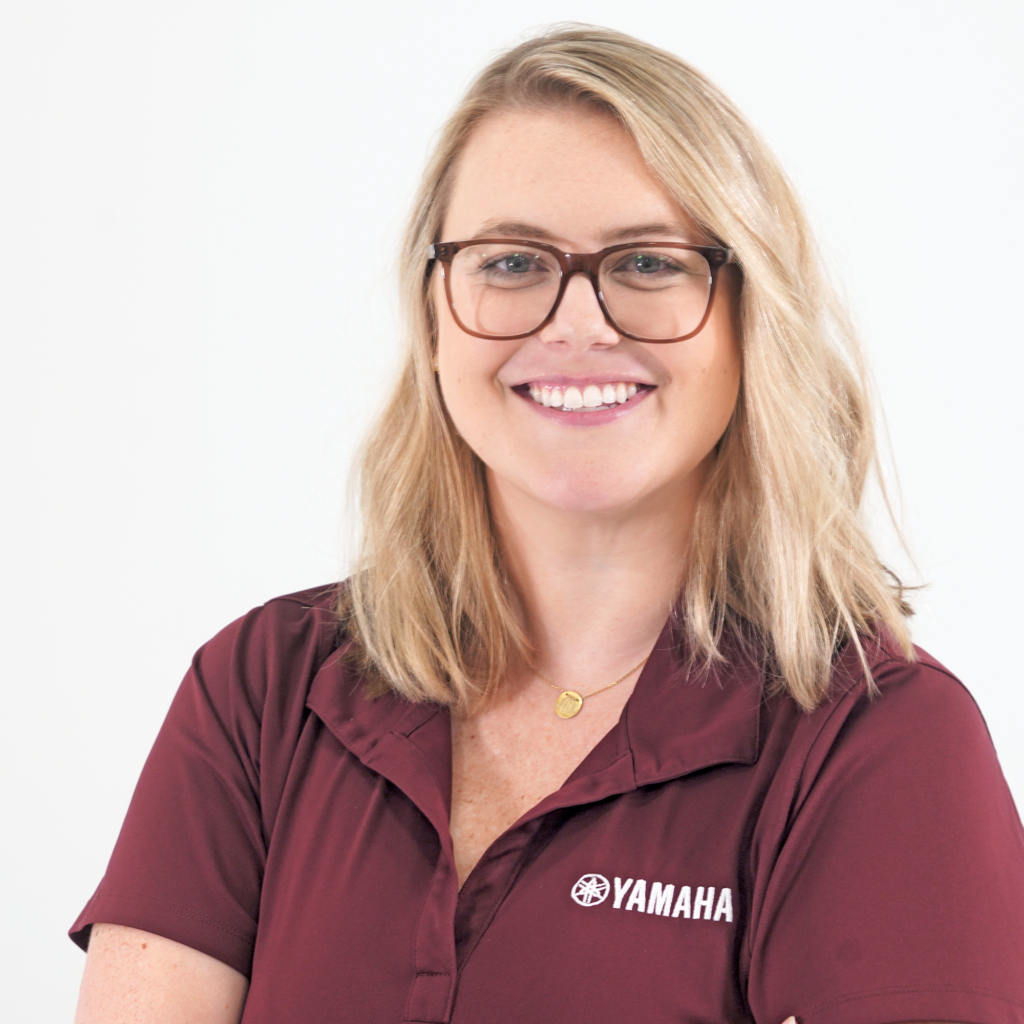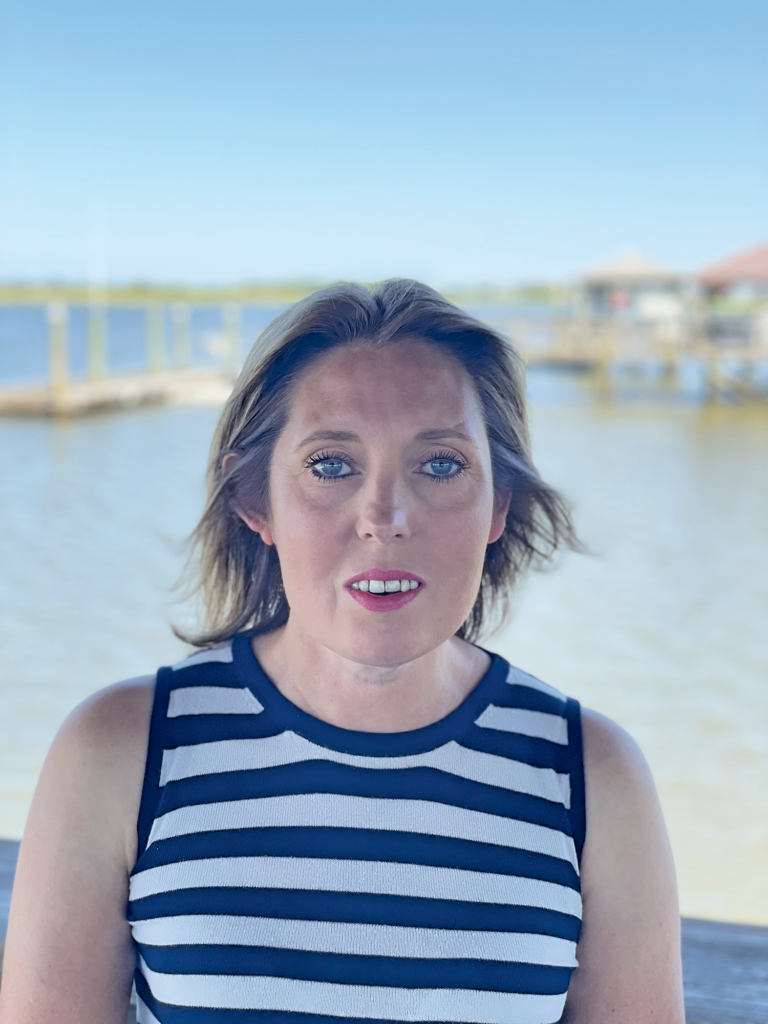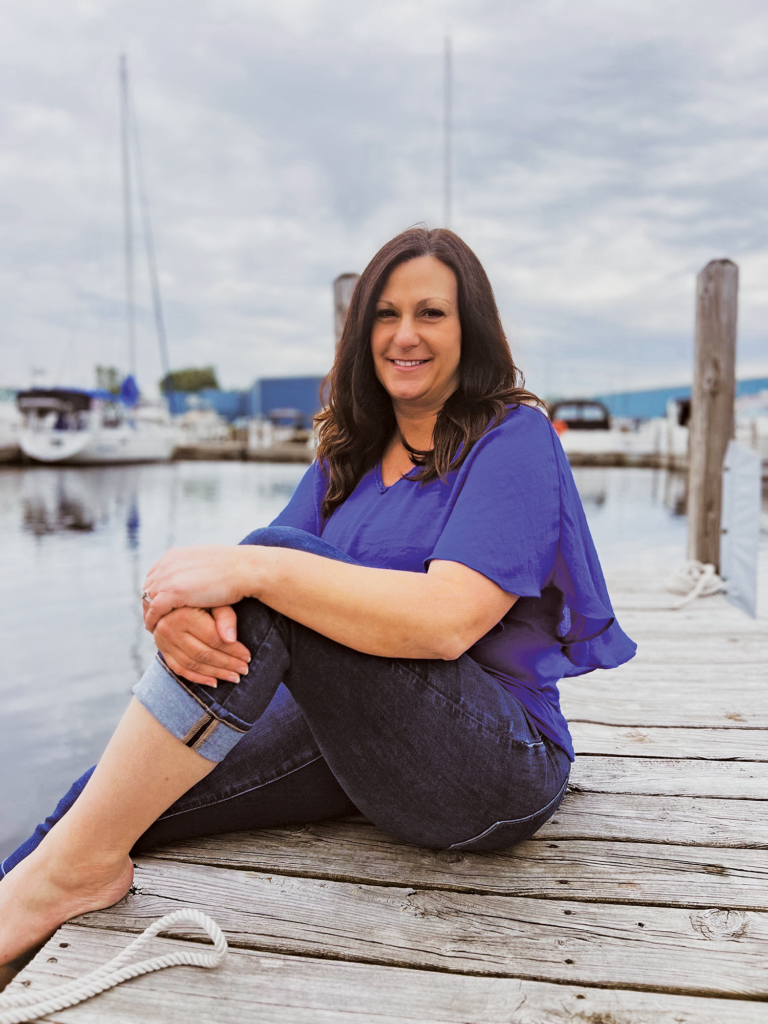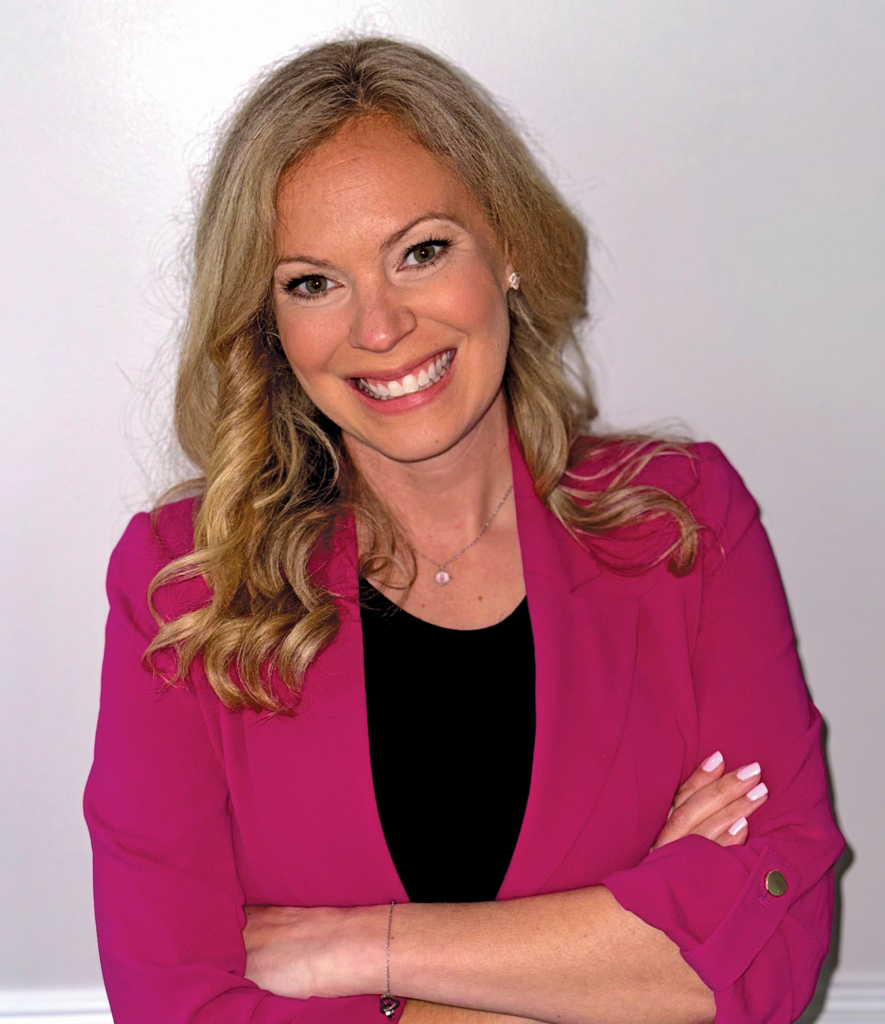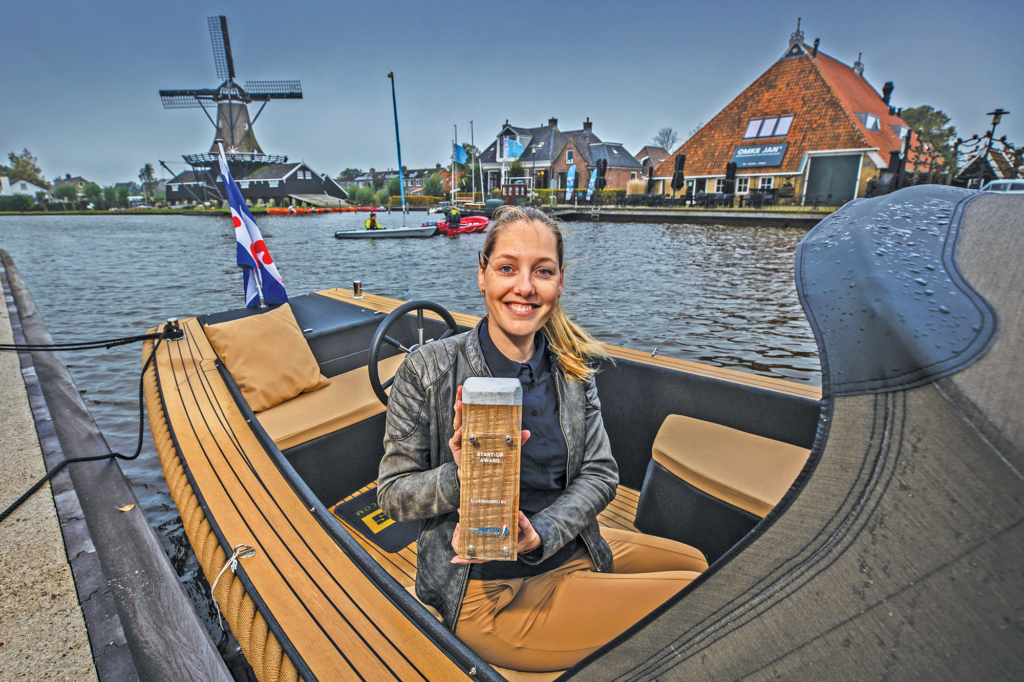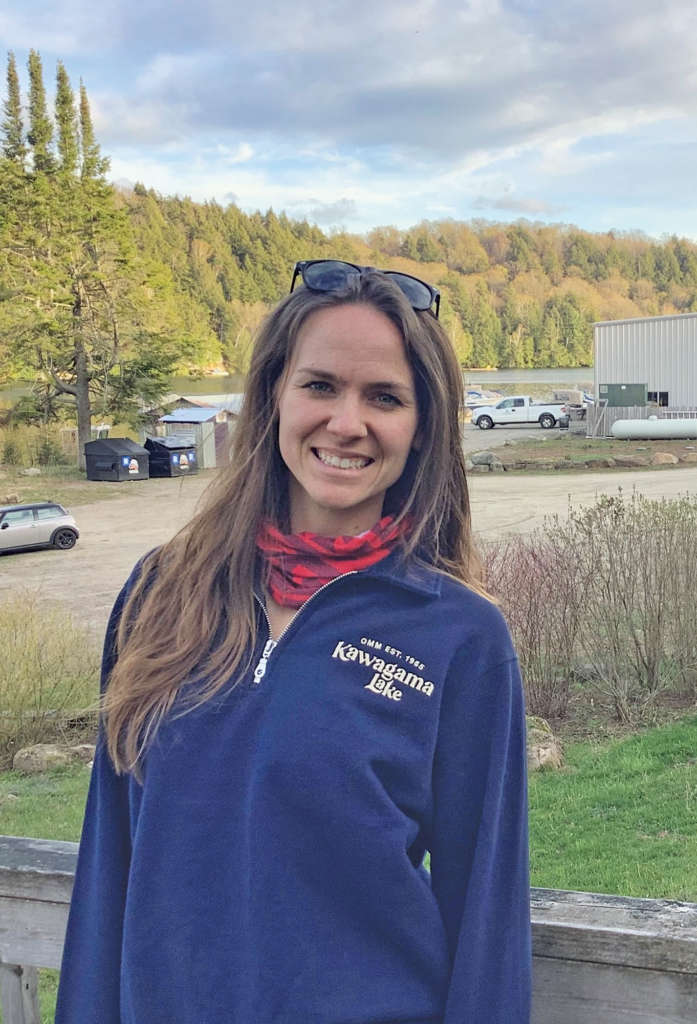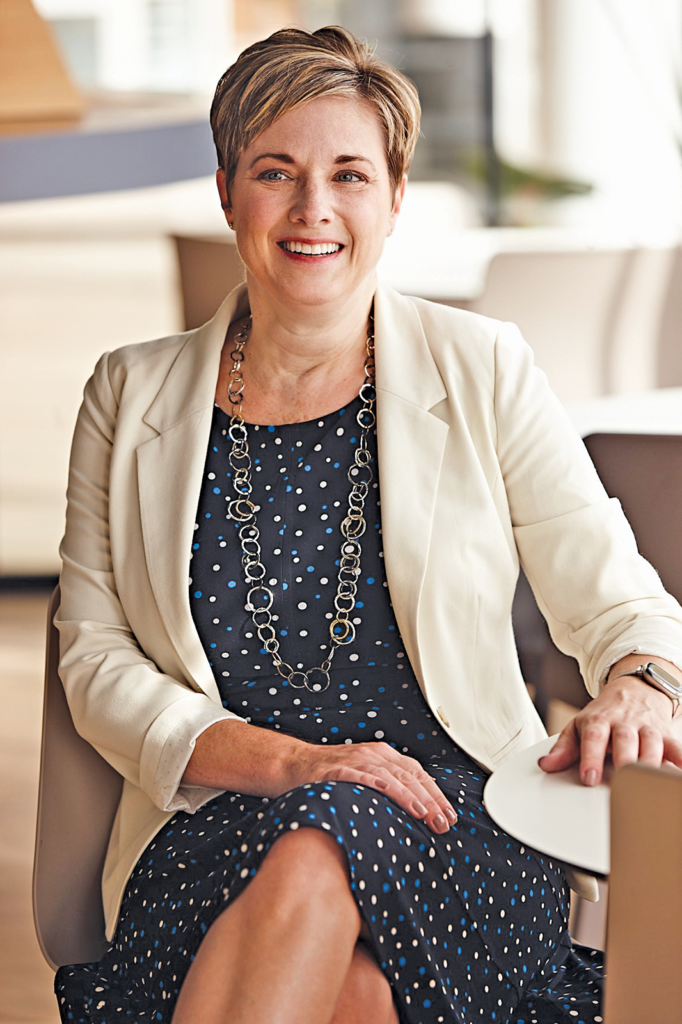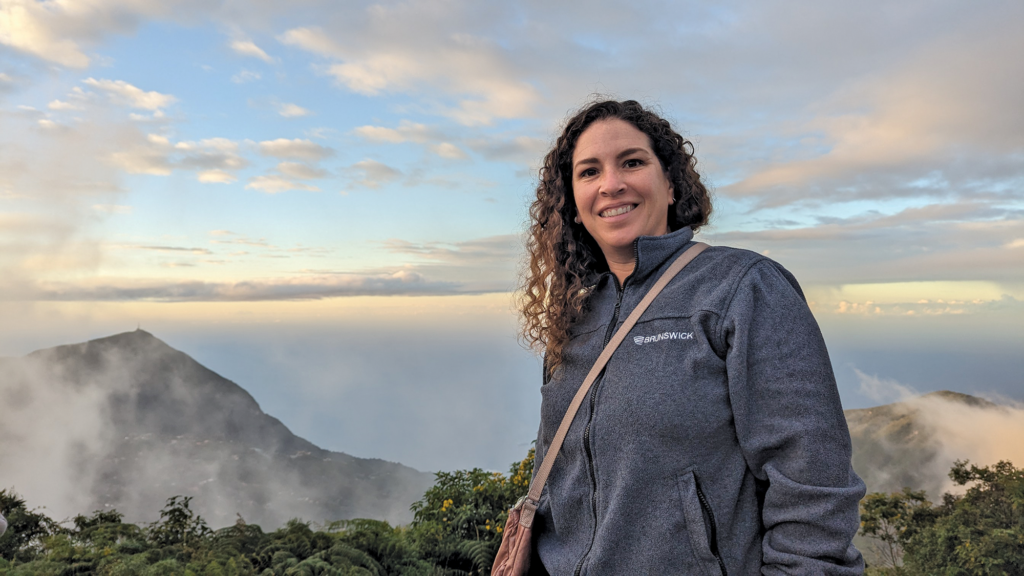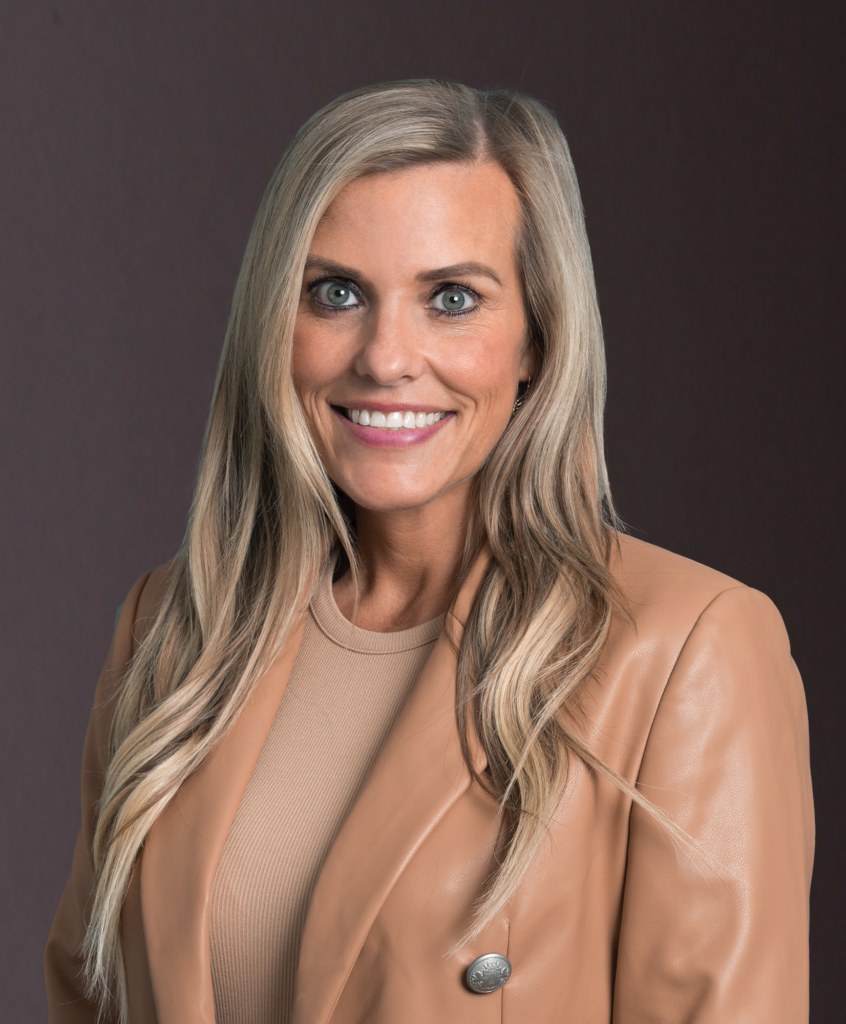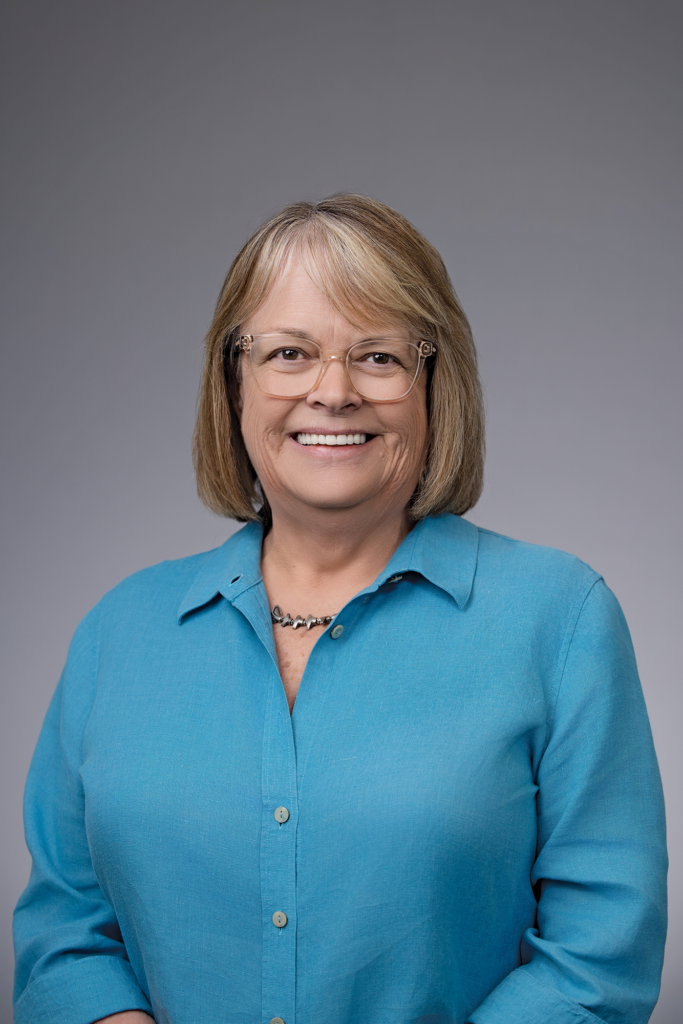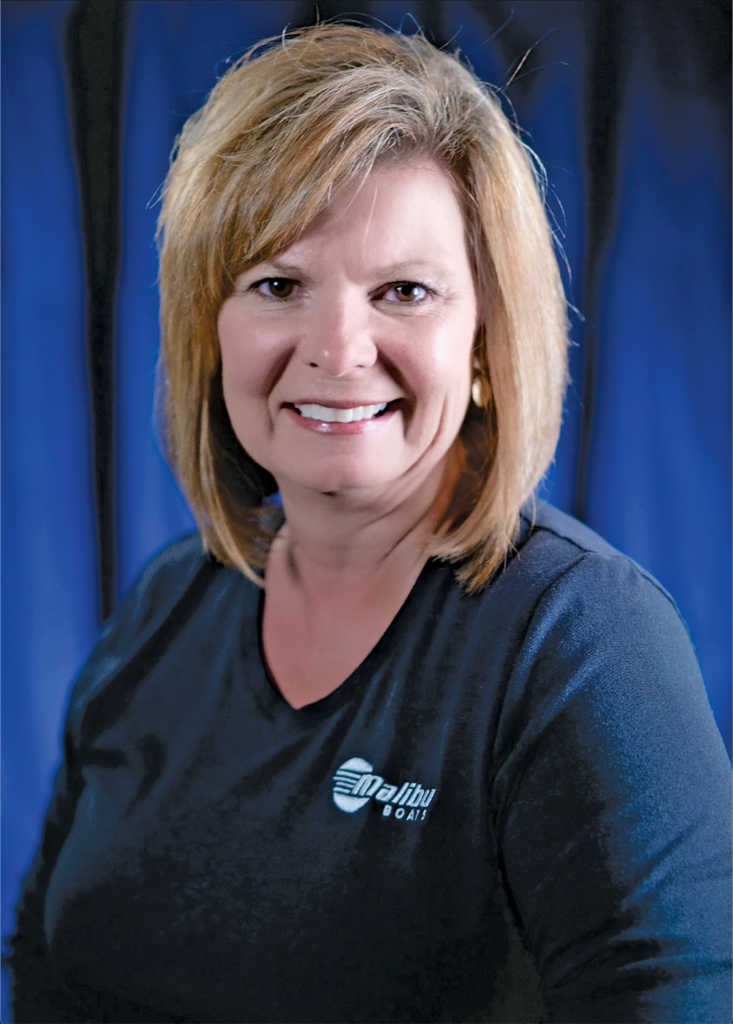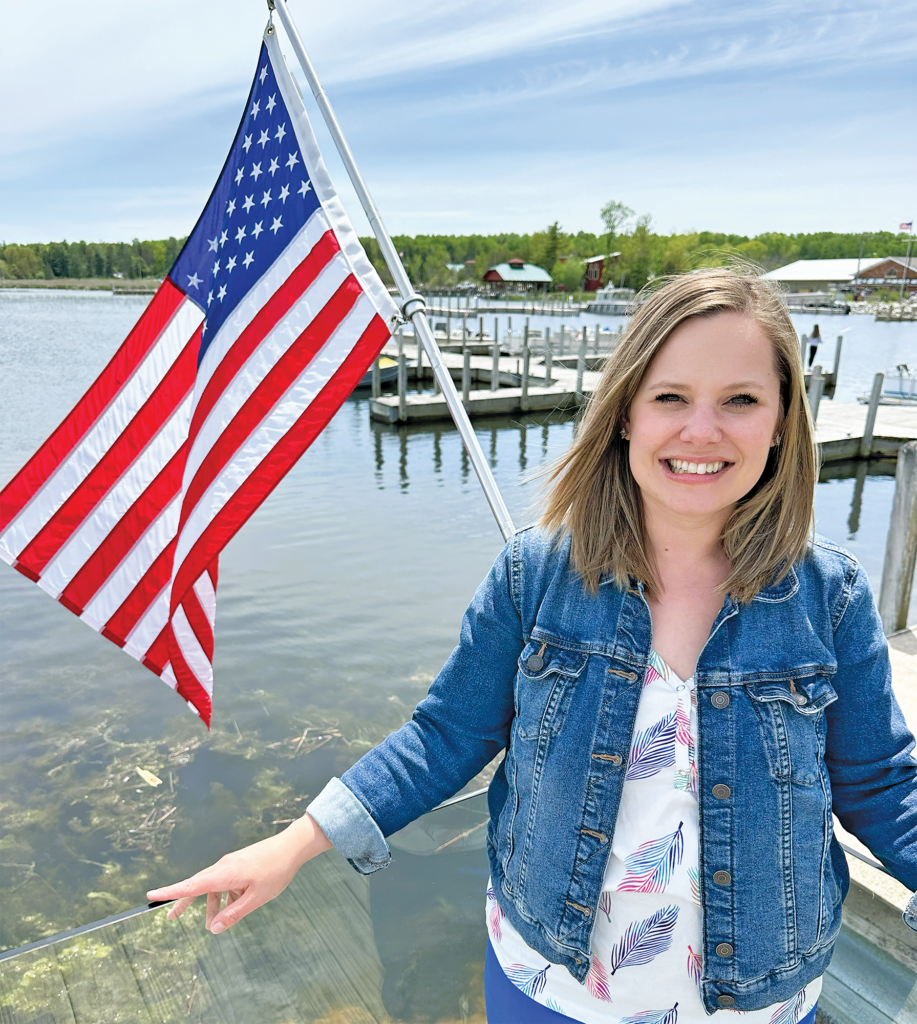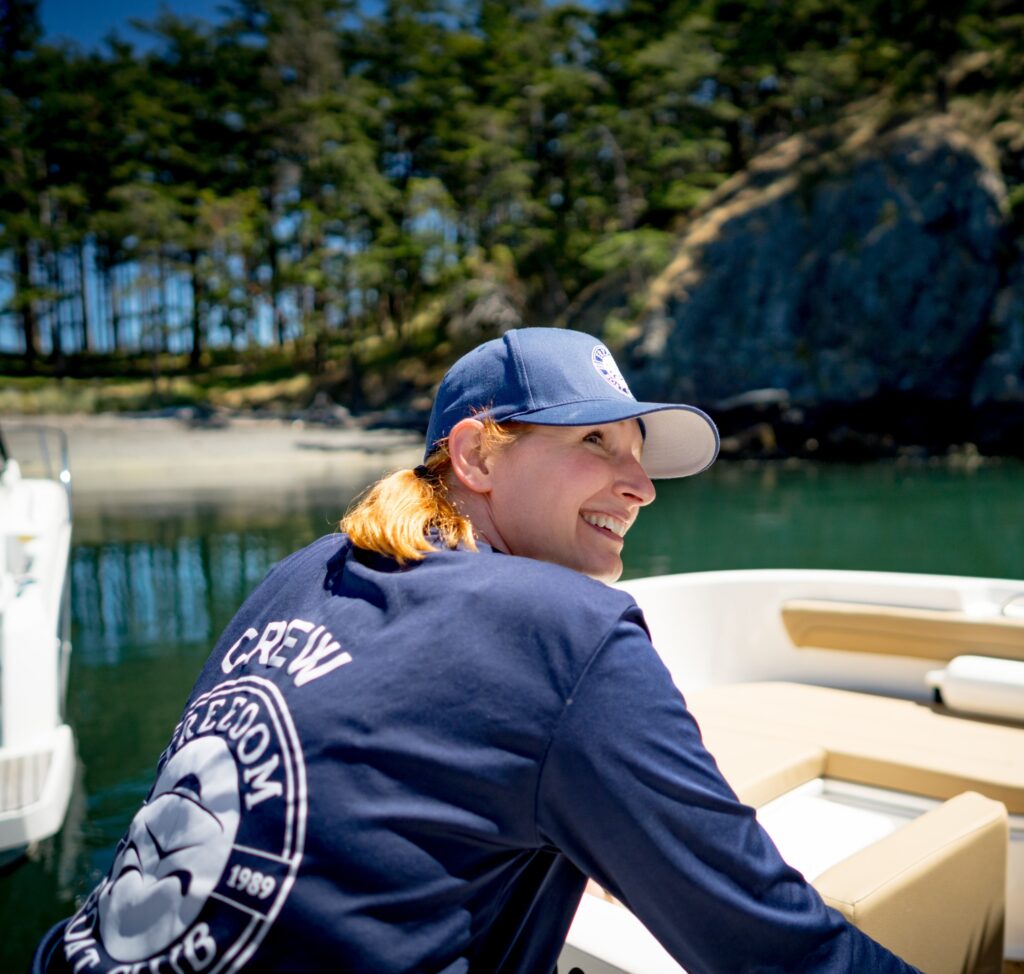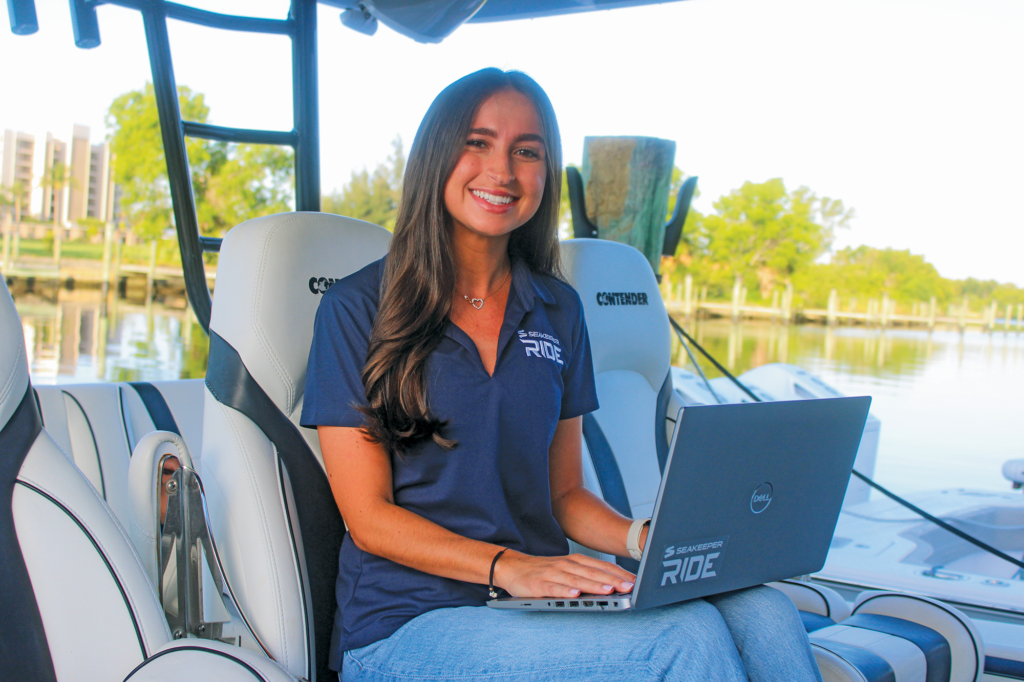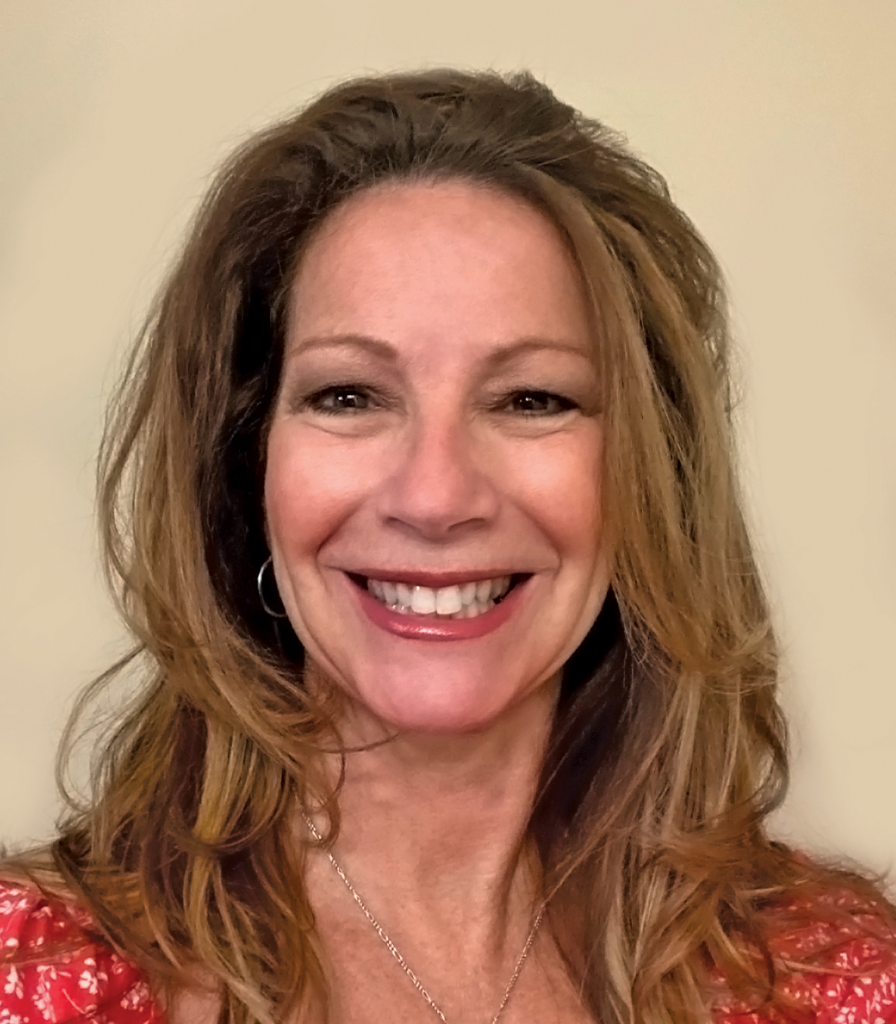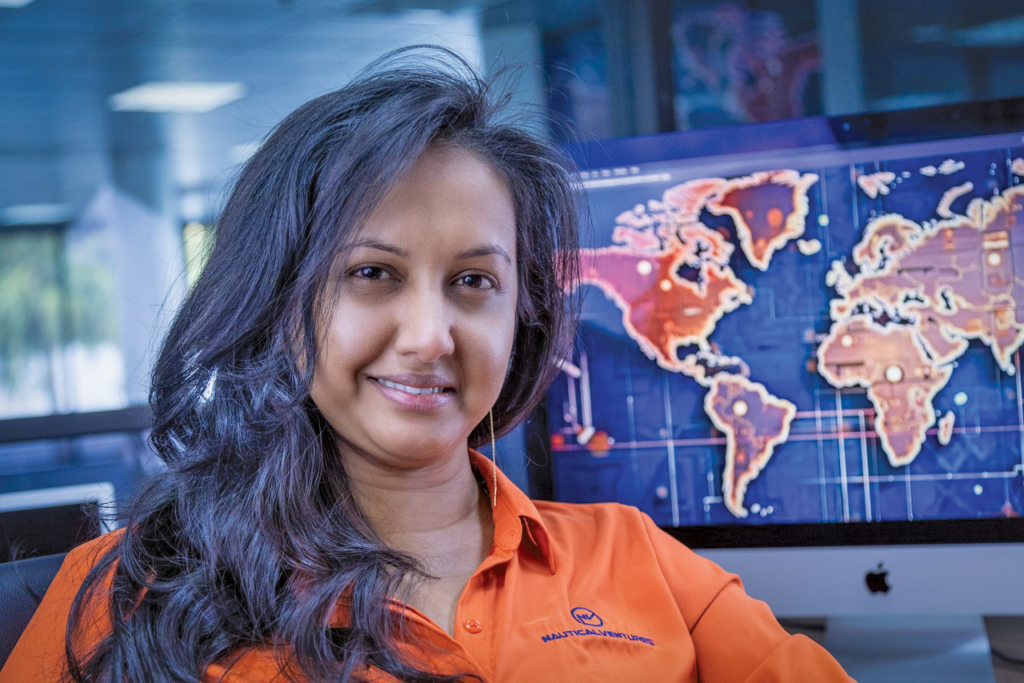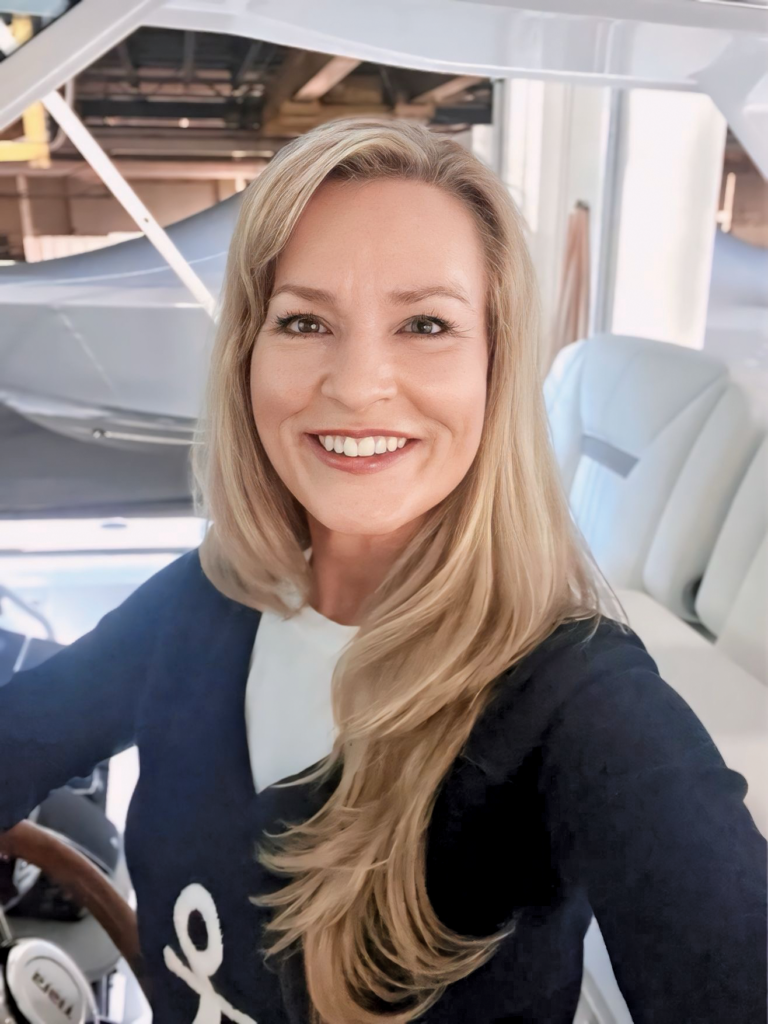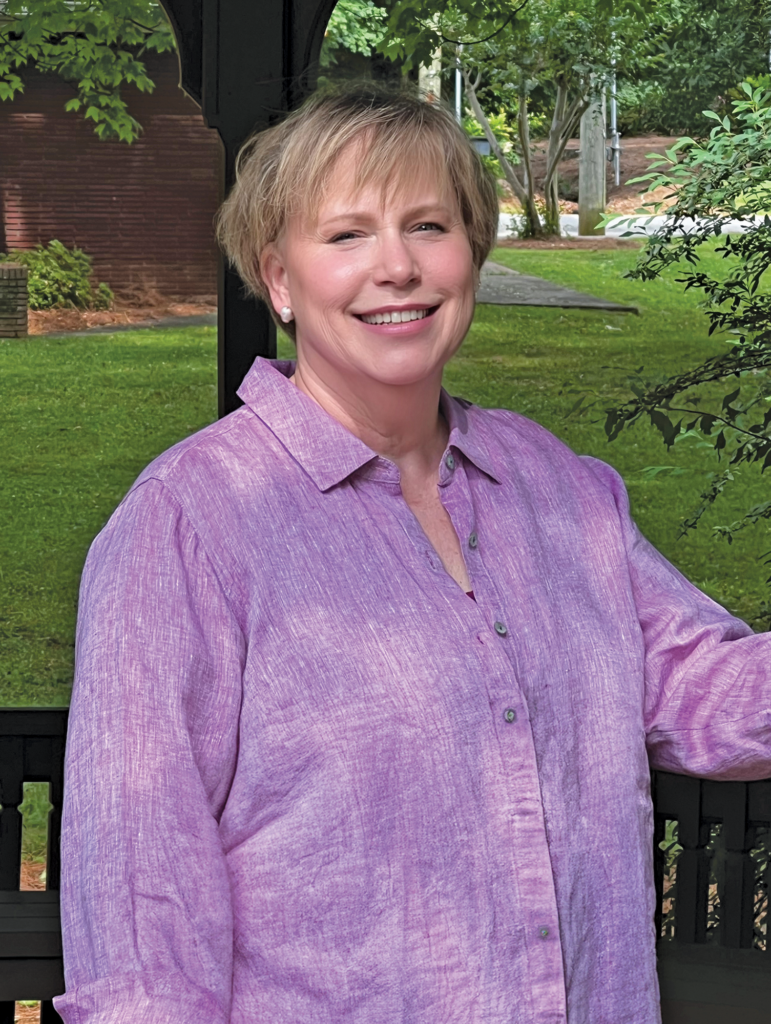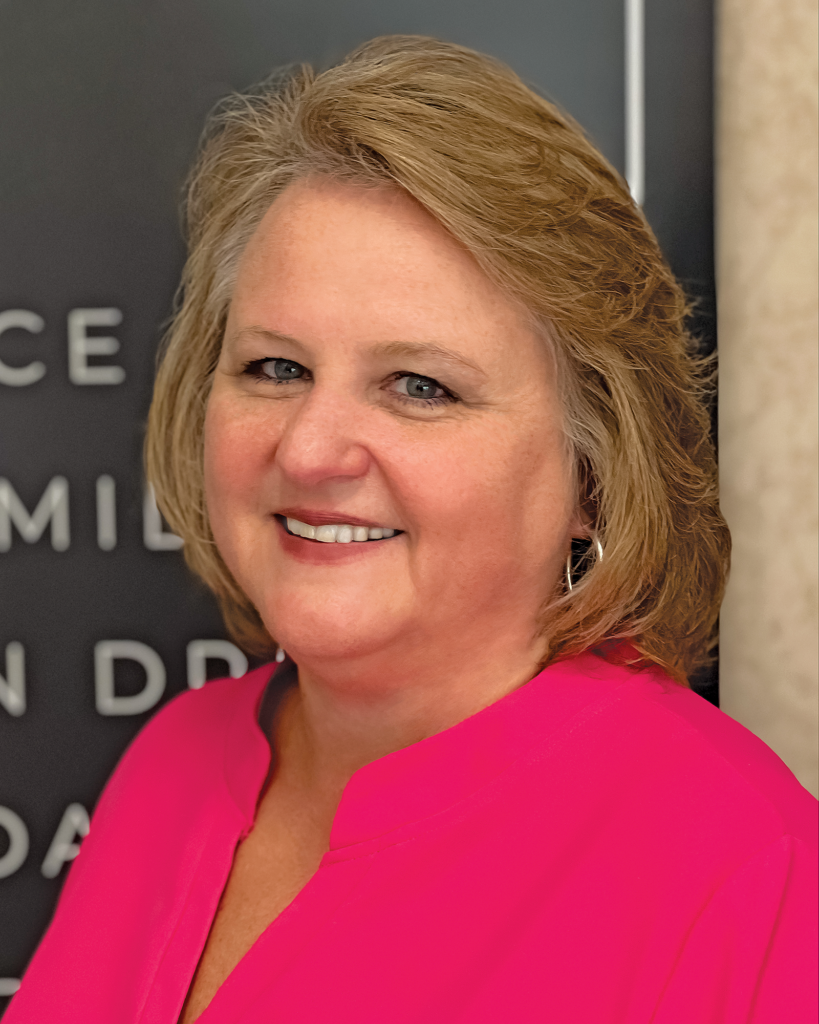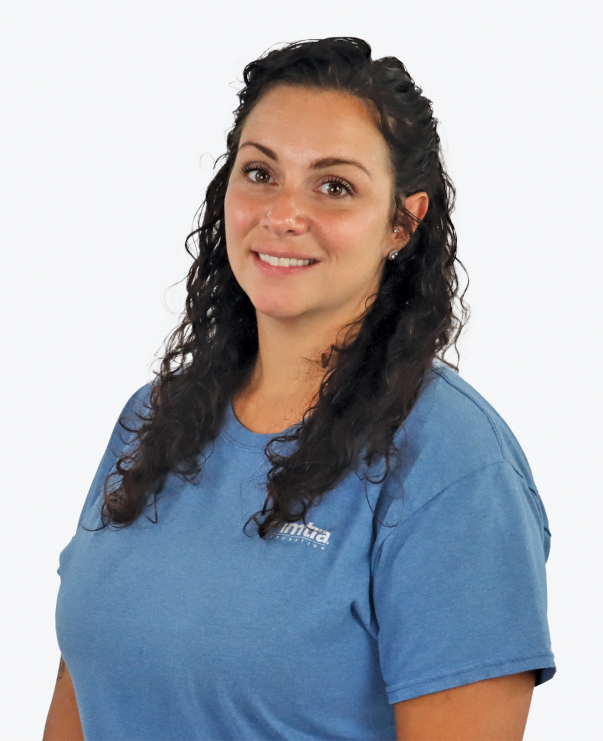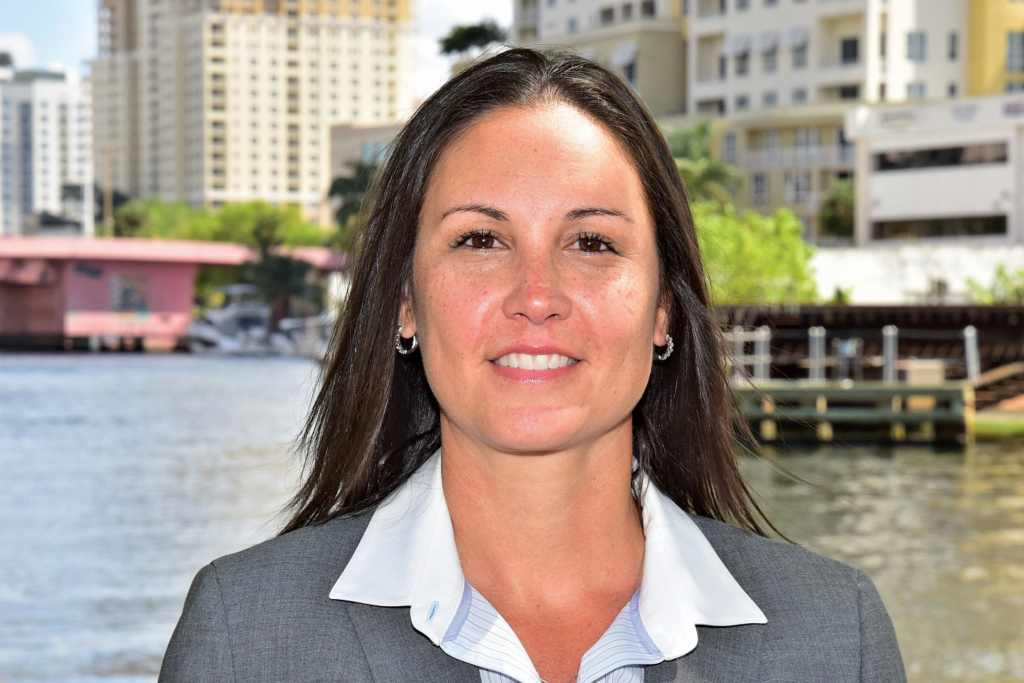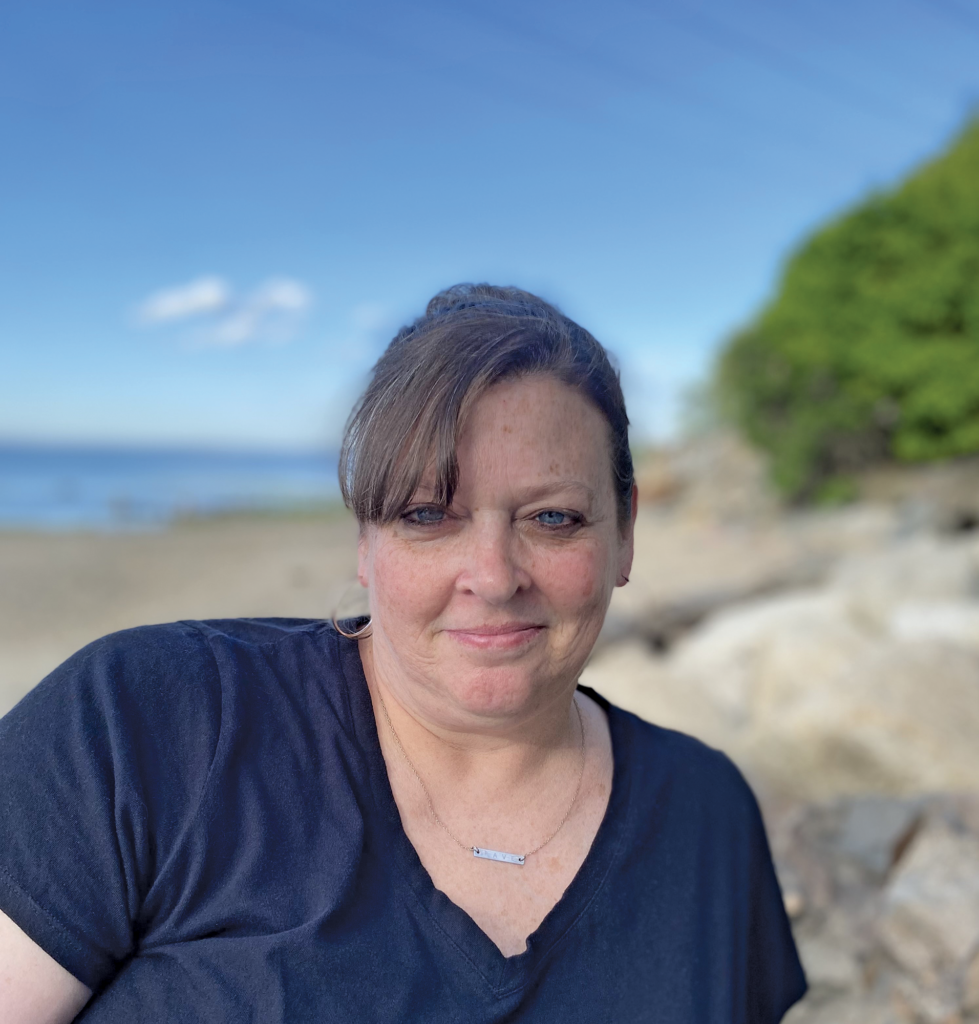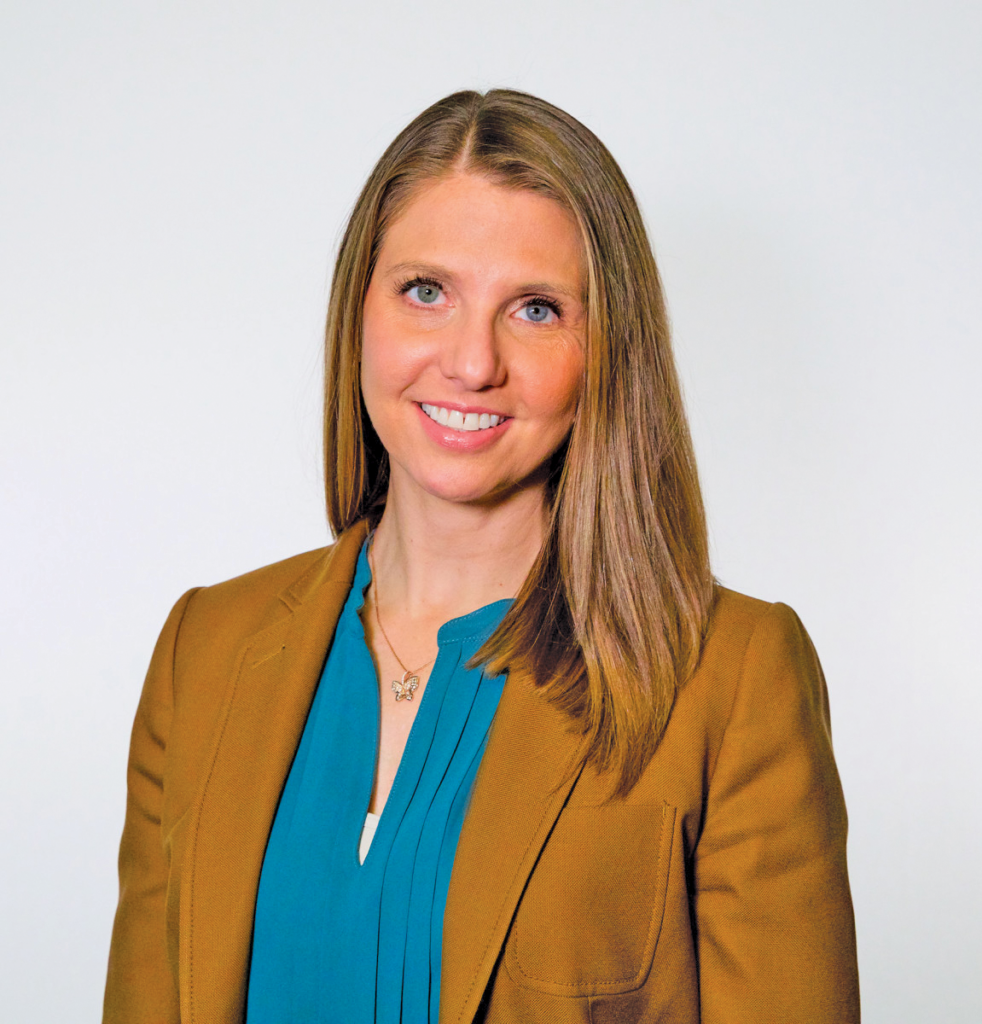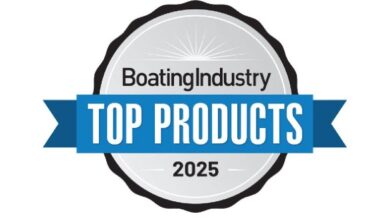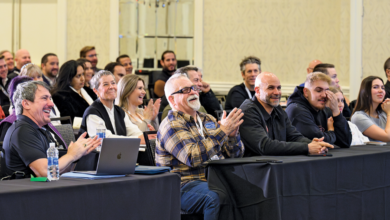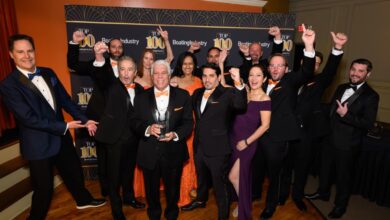2024 Women Making Waves

By Boating Industry Staff
Now in its seventh year, Women Making Waves is Boating Industry’s effort to recognize the multitude of women in the industry who have made and continue to make great contributions to its success, propel its growth and lead their organizations and peers into the future.
As a part of Boating Industry’s Top 100 Awards, the program continues to be stronger than ever before. With hundreds of well-qualified nominations, selecting this year’s Women Making Waves honorees was no simple task.
With a large and continuously growing number of women doing incredible work across the recreational boating industry, the pages of Boating Industry simply don’t provide enough space to honor each and every one. However, the women in the proceeding pages have given everything they have and more to the marine industry and have accomplished so much, with a pledge to continue pushing the industry forward.
Here they are, the 2024 Women Making Waves as nominated by the industry and selected by Boating Industry.
—
Megan Bennett
Business Transformation Office Dept. Manager, Yamaha Motor Corp., USA
Education: MBA
Years in the marine industry: 11.5 years
Other companies you have worked for in the marine industry and titles you held within those companies: In addition to the 7.5 years at Yamaha, I spent four years serving in the United States Coast Guard as a Search & Rescue Coordinator.
What are some of the biggest lessons you have learned working in the marine industry?
Working in the marine industry has taught me two invaluable lessons: passion and adaptability. The community within this industry is fueled by a deep love for the outdoors and a shared commitment to its preservation and growth. This passion permeates every aspect of our work, from product development to boat shows to the simple joy of being out on the water. It’s a part of who we are. But passion alone isn’t enough to navigate the challenges we face. The marine industry has weathered volatile markets, recessions, global pandemics, supply chain & logistical storms, and regulatory hurdles. Yet, it’s our adaptability that has allowed us to not just survive, but thrive, decade after decade. We’ve learned to pivot, innovate, and evolve in response to our changing environment, emerging stronger each time. This resilience has become ingrained in our DNA.
If you had to choose one memorable achievement in the marine industry, what would it be and why?
One standout achievement from my tenure at Yamaha is the launch and ongoing development of our Project Management Office. Witnessing the growth of this team and expansion of functions has been particularly gratifying, reflecting Yamaha’s commitment to nurturing talent and driving continuous improvement within the organization. This initiative has been a source of great pride as it has significantly added value to our business by streamlining project processes, enhancing efficiency, and ensuring the successful execution of key initiatives.
Was it difficult to navigate a career in this industry? Why or why not?
Navigating my early career had its challenges primarily because I wasn’t initially sure where I wanted to be within the sector. I sought out opportunities to gain business and industry knowledge, which enabled me to evolve into newly created roles. The path forward wasn’t always clear, trusting in my abilities and the support of my organization to cultivate that growth ultimately proved successful.
How do you hope to inspire other women in the marine industry?
I strive to inspire others by fostering positive influence through mentoring a colleague, actively engaging in change initiatives, and leading by example. My vision is for us to collectively shape a future where exclusive female support becomes obsolete, signaling the realization of genuine equality.
What advice do you have for women starting their careers in the marine industry?
I would say the opportunities are endless, but you must be able to chart your own course. Take the lead in your growth and don’t limit yourself.
Lucy Bowie
Owner, Dunbar Yachts
Education: Qualified Attorney in England and New York
Years in the marine industry: 10
What first drew you to the marine industry?
My husband and I both had a career change after spending my maternity leave sailing round the world with our newborn baby. We only got halfway, so the other half makes a great retirement plan!
If you had to choose one memorable achievement in the marine industry, what would it be and why?
Last year, the Georgia Clean Marinas program certified its first three clean marinas in Coastal Georgia. This achievement exemplified a spirit of commitment and cooperation between the Georgia Marine Business Association, UGA Marine Extension and Georgia Sea Grant, and Georgia DNR/Coastal Resources Division.
Was it difficult to navigate a career in this industry? Why or why not?
Many successful people in the marine industry are great multitaskers, and rarely find that their job description is all that they do. As long as you are willing to expand your comfort zone, you can have a full and rewarding career.
What advice do you have for women starting their careers in the marine industry?
A great draw of the marine industry is that it is constantly evolving. Learn to embrace the fact that no two days are the same.
Angie Brookhouse
Head Service Writer, Hall’s Sport Center
Education: Associate of Business Administration
Years in the marine industry: 27 years
Other companies you have worked for in the marine industry and titles you held within those companies: 1997-1998 Great Lakes Marina, Muskegon, MI; 1998-1999 Eldean Boat Sales, Muskegon, MI; 1999-2016 Keenan Marina, Spring Lake, MI; 2016-present Hall’s Sport Center.
What first drew you to the marine industry?
Living in and around the Great Lakes, I got my first job at a gas dock at a local marina when I was a teenager. It was just a job at first, but little did I know, as I became more immersed in the surroundings, I started to develop a strong interest and thirst for the culture of boating and all the fun that surrounded it. This opened a new avenue of work for me, and I continued on, as the working environment was challenging yet fun at the same time. Jobs started small as a front desk clerk at a large SeaRay dealership, then turned into me later managing and running a fairly large marina here, also in West Michigan. During the downturn of Keenan Marina, and the possible sale eminent, I moved positions to another venture as head service writer at Hall’s Sport Center. With my years of diverse knowledge, I feel I excel in this position and feel at home, having pulled all the pieces together with past roles, to make this the perfect fit.
What are some of the biggest lessons you have learned working in the marine industry?
I have learned many lessons, but there are two main takeaways in business that feel are of the upmost importance. 1. Customer service; This is why we are here, to give each customer the best service you can. It’s a small community here in West Michigan, so if you treat people fairly and in a timely fashion, word gets around fast. Keep them happy and they keep coming back. 2. Equally important is the quality of your work. As head service writer, I must make sure that my techs have a clear understanding of what needs to be done and to what degree. We have to always remember that accurately communicating ensures that the work gets done correctly and that the customer is satisfied. The safety of the customer is dependent on the service we provide, there can be no margin for error.
Was it difficult to navigate a career in this industry? Why or why not?
Was it difficult to navigate a career in this industry as a woman? OH YES! It is most definitely a challenge but a gratifying one to say the least. First of all, you work in an office, yet still have to learn all of the technical terms, parts, diagnostic issues, terms and what is the best approach to take care of the customer. To add to all of that, you have to gain the respect of your peers, which are almost always men. Next is the customer. They don’t intend to do it, but they will stereotype at first. As they start to see that you know just as much or more than they do, the conversation turns in a positive direction and the problems or requests get solved the same as if a man were to help them. Eventually, you become known as the “woman to go ask.”
How do you hope to inspire other women in the marine industry?
I hope to set an example of being a positive light with a strong work ethic that most women possess by nature. You need to grow a thick layer of skin to work in this industry. This comes with time but the strength you gain will build a deep layer of confidence that will only propel you through this industry. If this is your passion, go straight in and do not let anyone tell you that you cannot do what a man does in the same role.
What advice do you have for women starting their careers in the marine industry?
If boating is your passion, go for it! Immerse yourself in all of the knowledge you can from those around you. Take note and learn from people who have been in the business for a long period of time. The fundamentals of the industry never change, but the technology and manufactures are always evolving. Listen to your techs, they have been involved in many facets of boating repair, as they hold the most tribal knowledge. Also, never forget your outliers in the business; fiberglass repair, detailers, canvas workers and many more. Every different department within the boating industry hold key knowledge that will always help you advance. All in all, everyone is important and will somehow, someway have something to offer you in knowledge.
Christine Carlson McKone
Vice President of Marketing & Communications, Volvo Penta
Education: B.A. University of South Carolina
Years in the marine industry: 8 years
What are some of the biggest lessons you have learned working in the marine industry?
Life is better on a boat. I knew that before, but I’ve developed a deeper appreciation for what we create at Volvo Penta and the memories that we enable through this industry. We’re all in the business of shaping moments that allow us to disconnect from the daily distractions of life and re-connect with what and who matter most. And for that, we are extremely fortunate.
If you had to choose one memorable achievement in the marine industry, what would it be and why?
Several years back there was regulation in place that prevented boaters from participating in watersports behind a Forward Drive-powered boat, due to outdated language that did not take new innovations into consideration. I was part of a team, led by colleagues from Volvo Penta’s Chesapeake, Virginia HQ office, our public affairs group in D.C., the NMMA and several Virginia dealers who took to the state Capital in Richmond in an effort to lobby for new legislation. The efforts paid off in the form of a bill signed into law by Virginia Governor Northam. Now Virginia boaters can enjoy towed watersports, including wakesurfing, behind boats where the propeller is placed forward of the transom or an integrated swim platform.
Was it difficult to navigate a career in this industry? Why or why not?
The only limitations I’ve experienced were the ones I set upon myself. I’ve yet to come across someone in this industry – whether a peer, a leader, an industry partner, or even an industry icon – who was not willing to support in development however possible. There is an amazing network of individuals out there with their own stories of inspiration and advice, but it’s up to each of us to reach out personally and make those connections.
How do you hope to inspire other women in the marine industry?
I often share authentic stories about the challenges and joys of being a mother, while serving in a leadership role, managing a hectic travel schedule, volunteering in the community and somehow still finding time to prioritize self-care. Being a professional and parent isn’t about finding balance. It’s a constant juggling act – balls will go up, balls will go down, and some balls will inevitably fall. My hope is that in sharing my own vulnerabilities, other women will know that we don’t have to do it all and be everything to everyone all at once. If we just focus on doing our best, that is the best that we can ever do.
What advice do you have for women starting their careers in the marine industry?
Be authentic. Recognize who you are and embrace that to the fullest. Leverage the characteristics that make you unique and honor the strengths you bring to the table.
Marieke de Boer
Founder, IMPACD Boats
Education: Lean Six Sigma – Master Black belt behavioural studies
Years in the marine industry: 4 years
What first drew you to the marine industry?
My initial attraction to the marine industry goes way back to my childhood. My father had his own company in the marine business, and I loved accompanying him to boating exhibitions and events. I’d help him with cleaning the boats or setting up the events. This brings back many memories. I also had my own little boat when I was younger, from a young age I would discover the Frisian lakes together with my parents or friends. This fueled my love for being on the water and understanding the rules and guidelines on the water. It is those moments that laid the foundation for my passion for the marine industry today. Being on the water is freedom to me.
What are some of the biggest lessons you have learned working in the marine industry?
One of the biggest lessons I learned is that there is still a big gap in the marine industry when it comes to innovation, environmental responsibility, and sustainability. The journey to introduce our 3D-printed boats made from recycled materials shows that bringing new ideas to life requires a strong belief in your vision in order to make a meaningful impact. I learned that building a strong network is incredibly valuable. Connecting with others and building a community brought me personally, and professionally the right people around me. This had a big contribution to succeeding in the marine industry.
If you had to choose one memorable achievement in the marine industry, what would it be and why?
One of my most memorable achievements is winning (as a team) the Eco-Focused Boat of the Year at the International Boat Builder Awards last year. It is a huge compliment winning this award because just five years ago, we were not even in the marine industry. It is a validation of our effort and concept, but it also highlights that sustainability is recognized within the industry. We are making “impacd,” which is our goal to make within the industry. This moment will always be special to me, we were so surprised that we, as a small company, achieved this in such a short time.
Was it difficult to navigate a career in this industry? Why or why not?
As a woman, and with my career background, people were surprised to see me. Especially as a founder and leading a marine business while coming from FMCG. The industry is overall a bit more used to men. We started our journey as IMPACD with a team of three family members: Jorgen (my partner) working on the technical side, my dad (bringing in boating knowledge, while working for us) and myself. From the more traditional perspective people were used to reach out to the men in our team. This was a challenge however it also made us more unique besides our authentic story.
How do you hope to inspire other women in the marine industry?
As a woman in a male-dominated industry I want to show that it can be done differently. Women can make a big impact in the watersports, also if they are starting from scratch or living in a small country or place. If your passion is in place, you’re your story is good, you can absolutely succeed! I like to give other women the possibilities to grow, by investing in young potential and growing their network. I want to contribute and inspire others to be the best version of themselves and reach for the moon.
What advice do you have for women starting their careers in the marine industry?
Just start! Have your story ready and partner with other women. Let nothing hold you back. Help each other succeed, no matter what.
Alicia Dudezki
General Manager, Bluffers Park Marina
Education: BA Hon. Environmental Biology/English, SVOP, AMI Intermediate Marina Management
Years in the marine industry: 17 years
Other companies you have worked for in the marine industry and titles you held within those companies: Ontario Place Marina: Dock Master, Harbourmaster, Manager; Mariposa Cruises: Cruise Manager, Deckhand; Old Mill Marina: General Manager.
What first drew you to the marine industry?
We had many family boats (from a 42 Catalina to a 37 Carver) throughout my entire childhood which dominated the majority of our summers/time off. Since boating was my family’s and my leisure/fun activity, I thought it’d be amazing if I could find a career doing what I love! Low and behold, from starting at the bottom as a summer student Dock Master, I worked my way up, and over the years, absorbed any and all information I could about the industry, and here I am!
What are some of the biggest lessons you have learned working in the marine industry?
It’s tough! Managing customers, vessels, employees, and all of the different kinds of relationships that come along with those categories is super difficult! No amount of education can prepare you for what comes out of people’s mouths or what can happen to vessels on and off the water. I feel experience and working successfully through each scenario is the only way to truly understand the best methods to tackle each situation!
If you had to choose one memorable achievement in the marine industry, what would it be and why?
Being hired in my current position has certainly been an achievement I’m proud of. I was GM at a beautiful marina in cottage country with no intention of leaving until my dream job as the General Manager at Bluffer’s Park Marina in the GTA became available. I applied and met with some of the awesome owners and directors who appreciated my many years of experience and expertise, and here I am! Being here is the ultimate challenge and test of my skills; summer slips, winter storage, mechanic shop, fuel dock, fishing tournaments, busy transient docking, public park, restaurant and pub… what doesn’t BPM have?! And, I get to deal with all of it!
How do you hope to inspire other women in the marine industry?
There is no doubt in my mind that anything a man can do, a woman can do as well (if not better)! I continue to never say ‘no’ to a task and want to master all aspects of the industry. The marine industry is absolutely known to be male-dominated, but I slowly see the tides turning. More women’s names on vessel ownerships, more women summer students applying, and I have some powerhouse women working with me who kickass in their respective positions (yard crew, office administrator, summer attendant, etc.)!
What advice do you have for women starting their careers in the marine industry?
Don’t get discouraged. Getting your feet wet (pun intended) in the male-dominated marine industry can certainly be intimidating. My advice is to never say no to an opportunity, take chances, try new things, ask questions, and never give up. Cheesy, sure, but it’s what got me to where I am!
Lisa Lynn Gilbert
Senior Business Administrator, Priority One Financial Services
Education: Bachelor of Science
Years in the marine industry: 24 years
What first drew you to the marine industry?
My work at Priority One is what brought me to the industry. I knew nothing about boating when I began my career, even though my husband and I owned a boat ourselves! I began noticing some of the boat models that came across my desk as I helped customers. As my curiosity grew, I took a closer look at the engines and customizations. I started taking pictures and making a book with descriptions of each boat – something I thought would be beneficial to my team at the time. I’ve worked with over 23,000 customers at this point in my career, so I’ve seen a lot of boats!
What are some of the biggest lessons you have learned working in the marine industry?
Things change often in this industry. You cannot assume that the “norm” is always correct. I work in a department where we need to “cross every ‘t’ and dot every ‘I’.” It takes a lot to keep up with new financing standards and regulations today, so newness and change is something I am constantly preparing for.
If you had to choose one memorable achievement in the marine industry, what would it be and why?
It is always an honor to be among the list of nominees for Priority One’s annual “Above & Beyond” peer-nominated awards and “Dealers’ Choice” dealer-nominated awards. It is rewarding to see my hard work noticed and appreciated in a formal capacity.
How do you hope to inspire other women in the marine industry?
I do hope that my experiences and knowledge can provide hope to future women in the industry. Don’t hold back. Take risks. When it feels uncomfortable to put yourself out there, just do it. There have been many women to stand by my side and support me in my journey. I believe it will be the same for you!
What advice do you have for women starting their careers in the marine industry?
Do not worry about knowing everything. You will get there if you work on it each day. Women today do so much and have become bright lights in the industry.
Trish Gyorey
VP of Global Supply Chain and Americas Operations, Navico Group, a Division of Brunswick Corporation
Education: BSE in Mechanical and Aerospace Engineering, MSE in Manufacturing Systems Engineering, MBA. All from the University of Michigan
Years in the marine industry: 3.5 years
What first drew you to the marine industry?
The challenge and the opportunity. I have always said that my dream job would be to run supply chain and operations, and this is the industry that offered that to me! While it’s a brand new industry to me, it’s been fun to apply the things I’ve learned elsewhere throughout my career.
If you had to choose one memorable achievement in the marine industry, what would it be and why?
I am extremely proud of our supply chain and operations team. Some have been in the industry for years and others are newer like myself. I am proud to lead a team that challenges each other constructively and works together collaboratively to solve problems. In our function, there will always be problems and our job is not to identify problems, explain problems, or make excuses for problems, but rather to come together to find and execute the best solution possible. I’m also proud of the global nature and level of diversity in my team. We’re a truly global team with people located in eight countries. We speak multiple languages, have different ethnic backgrounds, and different industry experiences. We have many exceptional rising leaders, both male and female. I’m proud that we’ve been able to build and retain such a strong team during what has been a very difficult, stressful few years.
Was it difficult to navigate a career in this industry? Why or why not?
The biggest challenge for me has been the learning curve around the industry and our broad product portfolio. I’ve also spent my entire career in male dominated environments, so lessons learned there have been helpful here. Although, I’d say there are many successful women in the industry these days.
How do you hope to inspire other women in the marine industry?
If I can do this, anyone can do this. I didn’t start with any advantages. I think young women look at successful women further ahead in their careers and say, “I could never be like that.” But you can. I remember watching a panel of senior women, thinking it could never be me, and a few years later I was on the panel. I’m always happy to talk to anyone about my own career journey, and about theirs.
What advice do you have for women starting their careers in the marine industry?
Take calculated risks. Apply for a promotion you’re not sure you’re ready for. Move to a different location or continent. Work in a function outside your expertise. Sit at the table and take up your space. When you have something insightful to say, say it. Don’t wait to be asked. I’d also encourage young women to experiment and find the style you are comfortable with as a professional and a leader. If you’re in an environment where you can’t be who you are, find a better environment. Don’t settle. Additionally, find sponsors. These are the people who don’t just think you’re great but will advocate for you. These are the people that will suggest you for a stretch assignment or promotion when you’re not in the room. Or better yet, will take the chance on you themselves. Lastly, get results. Make sure those results are visible. Give others credit where deserved but take credit when it’s due you.
Captain Myndi Harbin
Training Captain, Carefree Boat Club; Owner/BoatMom, Maritime Instruction
Education: BA, Business Administration & Accounting; Chapman’s School Of Seamanship, USCG 100 ton Captain; National Safe Boating Council, On Water Instructor.
Years in the marine industry: 2.5 years
Other companies you have worked for in the marine industry and titles you held within those companies: Prince William Marine, Warranty Admin/Detail Manager
What first drew you to the marine industry?
I was on a boat at three weeks old, so have always been involved in recreational boating! I grew up around the marine industry. My father started a marine repair business over 50 years ago and my brother still runs it. When I was laid off after a 30-year career in government contracting and unable to find work in that field, a transition to the marine industry felt natural. I decided to take what I love and make a career of it! I went to Chapman’s School of Seamanship and earned my USCG 100-ton Masters license. I came back to the DC Area and found a passion teaching boat safety, especially to women.
If you had to choose one memorable achievement in the marine industry, what would it be and why?
Starting my own business and being recognized for the niche of a woman helping other women become more confident has been very rewarding on its own, but being asked to present my class, Admirals in Action, at the 2024 DC Boat Show was a big moment for me!
Was it difficult to navigate a career in this industry? Why or why not?
Being a female Captain, some male counterparts have a hard time accepting my credentials, and that can be challenging. I do have some wonderful colleagues who champion my achievements and see me as a welcome alternative in the evolving marine industry, which increasingly includes females and minorities.
How do you hope to inspire other women in the marine industry?
I hope to demonstrate that there is room in the marine industry for women of any age! There are so many different areas within the industry to explore: marina management, manufacturing, dealerships, finance, and insurance. The possibilities are endless.
What advice do you have for women starting their careers in the marine industry?
Network, network, network! Then, keep showing you have something wonderful to offer! Ask questions and learn everything you can. Boat people love to share their wisdom when asked!
Marjorie Holmquist
Program Manager, Brunswick/ Venture Group
Education: BS in Mechanical Engineering (University of South Carolina) + MBA (UCF)
Years in the marine industry: 19.5 years
Other companies you have worked for in the marine industry and titles you held within those companies: All with Brunswick: Assembly supervisor, Development Engineer, Bill of Material Specialist/Project Manager.
What are some of the biggest lessons you have learned working in the marine industry?
There are always highs and lows in life. People come and go, but those of us who stay in the marine industry do so because we love it. Networking and building relationships are crucial because you never know when paths will cross again. Success isn’t achieved alone; it takes a team. When you work hard, you also earn the chance to play hard.
If you had to choose one memorable achievement in the marine industry, what would it be and why?
If I had to choose one memorable achievement in the marine industry, it would be the launch of Navan in Europe last year. This high-visibility project for Brunswick involved creating a new brand, and managing it was both challenging and exciting. I received incredible support from every department, allowing us to launch two boats, the S30 and C30, on schedule and within budget. Showcasing the final products at the Cannes Boat Show was thrilling. Being involved in every aspect—from the initial idea, budgeting, and creation to decision-making, coordination, and execution—was a truly unforgettable experience.
Was it difficult to navigate a career in this industry? Why or why not?
Not really. I began as an assembly supervisor, where I learned the boat manufacturing process from the ground up. This hands-on experience was invaluable when I transitioned into Engineering. By focusing on what I enjoyed and doing it well, I was able to open doors and advance within Brunswick. The key was building a strong foundation and leveraging those lessons to grow my career.
How do you hope to inspire other women in the marine industry?
A coworker once told me that courage is doing something despite being afraid. Even when something scares you, pushing through can turn challenges into everyday achievements. I hope to inspire other women by showing that confidence in yourself is key. It reflects in your work and ultimately in your success. Embrace challenges, and you’ll be glad you faced them head-on.
What advice do you have for women starting their careers in the marine industry?
Leverage your strengths and focus on what you enjoy doing, whether it’s logistics, planning, development, marketing, sales, assembly, repair, design, or manufacturing. Do it well, and people will take notice. The marine industry offers opportunities for every personality type and experience. Boating is fun, and your job should be too. Find your niche and excel in it.
What is your favorite place to go boating?
My favorite places to go boating are either on a lake, where I can enjoy water sports like wake skating, wake surfing, wakeboarding, hydro chair, and barefoot skiing, or around an island, relaxing and hanging out with friends.
What are some of your favorite non-boating hobbies?
I enjoy camping, solving jigsaw puzzles, playing board games, and Latin dancing. I also love participating in various sports, with my latest passion being Flat Track Roller Derby. This team sport is full of strong women from diverse backgrounds who support each other and give back to the community. It’s been incredible to see how inclusive and supportive the environment is. The team includes women in their 20s to 50s, ranging from students and stay-at-home moms to corporate professionals and nonprofit workers, representing different cultures, races, body types, and personalities. It’s a wonderful mix of introverts, extroverts, leaders, and team players, all united by their kindness and camaraderie.
Jill Howell
Marketing Director, Northpoint Commercial Finance
Education: B.A. in Public Relations, Minor in Business Administration, MBA in Marketing and Finance
Years in the marine industry: 14 years
Other companies you have worked for in the marine industry and titles you held within those companies: Account Manager at Textron Financial
What first drew you to the marine industry?
I was fortunate to be hired in Floorplan Finance upon graduation from college. Besides enjoying marketing work in commercial finance, the marine industry provides an extra special element of excitement and fun, with the bonus backdrop of sun, water and adventure.
What are some of the biggest lessons you have learned working in the marine industry?
I’ve learned about the importance of building professional relationships and knowledge sharing, both of which have proven fundamental to my growth and professional development. From situations such as the uncertainty of the global pandemic to financial downturns, having strong customer relationships in place has served as the anchor during uncertain times. The ability to enjoy a strong community and to have a close network with whom you can collaborate and share best practices leads to a culture of trust and loyalty.
Was it difficult to navigate a career in this industry? Why or why not?
I’ve been very fortunate to work closely and alongside many individuals who bring 20+ years of marine industry experience to their roles. My colleagues have openly shared their knowledge and expertise, which made it very easy to launch, navigate and sustain my career.
How do you hope to inspire other women in the marine industry?
I hope to be able to show other women that with the right support, you can succeed and thrive in any industry, including marine. The key to success is finding an organization that not only supports you, but also encourages your professional growth and achievements, while also understanding that life happens outside the four walls of your office and provides flexibility on all fronts.
What advice do you have for women starting their careers in the marine industry?
Find mentors within your organization who are willing to help guide you and provide helpful advice and insight. Proactively seek opportunities to get involved and contribute to your organization and/or within the marine industry. Continue to learn and invest in yourself through professional development and educational initiatives.
Dawn Hunt
Director of Human Resources, MarineMax
Education: High School
Years in the marine industry: 30 years
Other companies you have worked for in the marine industry and titles you held within those companies: Gulfwind Marine: Office Manager
What first drew you to the marine industry?
I first came into the marine industry by following a former manager from the automotive industry, but I soon knew that I had found a place that I would stay.
What are some of the biggest lessons you have learned working in the marine industry?
Resiliency! Not everything happens according to our plan. We have all had to adapt along the way. From the recession of 2008 to the COVID pandemic, we all had to strengthen our agility, problem solving, and flexibility, and we are all better because of it.
If you had to choose one memorable achievement in the marine industry, what would it be and why?
Being nominated by my peers for this award is truly a highlight. Human Resources is often a field that is outside of the limelight, which makes this honor even more special!
How do you hope to inspire other women in the marine industry?
When I joined the industry, I had a lot to learn. I devoted myself to learning about the industry, and importantly, about the people that make MarineMax so special. Making people’s lives better is my personal WHY, and I can fulfill that WHY in the field of Human Resources. Hopefully others will see that hard work along with a love of what you do, combined with WHY you do it. I hope others will see that if you are willing to put forth the effort, you will see the rewards.
What advice do you have for women starting their careers in the marine industry?
Take advantage of every learning opportunity, spend time in other departments, ask questions, and soak up knowledge. Don’t be afraid to fail or step out of your comfort zone—I’ve learned the most by saying “yes” when a new opportunity arises—even if I wasn’t sure of the outcome or the outcome wasn’t what I expected. There is no such thing as failure if you learn from every experience.
Debbie Kent
Chief Human Resources Officer, Malibu Boats, Inc.
Education: Masters in Adult Education, Training/Development Emphasis
Years in the marine industry: 13 years
What first drew you to the marine industry?
What first drew me to the marine industry was my upbringing. I grew up camping and boating with my parents from a very young age, and these activities became a fundamental part of my life. My husband and I have continued this tradition with our own children, teaching them to love the outdoors and boating as much
as we do. My passion for boats makes working in this industry a dream come true. What better way to spend your career than making products that inspire joy, bring families together, and create lasting memories? You don’t find that everywhere.
What are some of the biggest lessons you have learned working in the marine industry?
One of the biggest lessons I have learned working in the marine industry is the importance of understanding the unique nature of boat building. Unlike high-volume manufacturing, boat building is highly customized. Taking the time to learn and thoroughly understand this specialized manufacturing process is critical. Not only did it help prevent me from making mistakes, it also helped me gain credibility with the team. Embracing this approach has been invaluable in navigating the complexities and nuances of the marine industry.
If you had to choose one memorable achievement in the marine industry, what would it be and why?
If I had to pick one memorable accomplishment in the marine industry, it would be leading the HR function during a period of significant growth for our organization. When I started, we had just two brands and about 300 employees. Over time, we expanded to five companies, eight brands and more than 2,500 employees. It has been incredibly rewarding to be a part of this tremendous growth and to help manage the challenges and opportunities that came with it. This achievement stands out because it underscores the impact of strong HR leadership in fostering a thriving and dynamic workplace.
How do you hope to inspire other women in the marine industry?
I hope to inspire other women in the marine industry by demonstrating the tremendous opportunities available in this field. I began my career as a director of a single department and eventually grew into the role of Chief Human Resources Officer (CHRO) for a publicly held company with an international presence. My journey demonstrates that with dedication and hard work, significant career growth is possible. By sharing my experiences and accomplishments, I hope to encourage other women to pursue their goals and realize their potential in the marine industry.
What advice do you have for women starting their careers in the marine industry?
My advice to women starting their careers in the marine industry is to always be open to learning and to ask questions to gain a deeper understanding. Take the time to understand the manufacturing process and strive to be a partner in it. This proactive approach will help you build credibility and develop strong, collaborative relationships with your peers. By embracing continuous learning and partnership, you will build a solid foundation for a successful career in the marine industry.
Meghan Mitchell
Admissions and Marketing Manager, Great Lakes Boat Building School
Education: Bachelor of Arts from Grand Valley State University
Years in the marine industry: 2.5 years
What are some of the biggest lessons you have learned working in the marine industry?
The biggest lesson I have learned is that people don’t know what they don’t know. The marine industry is a relatively unknown industry to a lot of people looking to get into the trades. In my role, I am connecting with people coming right out of high school, career changers, military veterans, retirees, and more. First, I am sharing what the marine industry has to offer and what career opportunities are available. If people have an interest in learning more after that initial connection, I work with them to discuss how they can get into the industry and how the skills learned at Great Lakes Boat Building School (GLBBS) can help them get into a great career. If people don’t know that the marine industry is even a viable option for them, they aren’t going to come to us. We need to meet people where they are in their career journey and show them where they can go.
If you had to choose one memorable achievement in the marine industry, what would it be and why?
Honestly, I can’t choose just one. In my 2.5 years in this industry, I have gotten to be a part of so many great things. There are two things that I am incredibly proud of – Veteran Visit Day at Great Lakes Boat Building School and SURGE – Detroit River.
I love getting to work with veterans and one of my initial goals when starting at GLBBS was to make an active effort to connect with veterans looking to get into the industry or who may not even know about it. I went to the school’s President, Nikki Storey, with the idea of Veteran Visit Day and she gave me the freedom to create it. From there, I worked with GLBBS’ Matt Dost, who works with veteran students at the school, to make Veteran Visit Day the best it could be. GLBBS’ first Veteran Visit Day was in May 2023. The purpose of the event is less about recruiting for GLBBS and more about showing our military veterans what benefits and resources are available to them. The day connects them to resources for education, careers, and more, while also introducing them to the marine industry. I invited leaders who work with veterans on different levels (local, county, state) to come to the school to talk with veterans. At our second event (May 2024), I included a panel of military veterans who graduated from GLBBS to talk about the resources they used, their time at the school, and what their time working in the industry has been like. GLBBS is providing a place for veterans to ask questions, learn what resources they can take advantage of, and more. And of course, we throw in a boat ride around the Les Cheneaux Islands to really round out the day!
SURGE – Detroit River is another outreach event that I am so excited to be a part of. Connecting with high school students in urban communities was another early goal set for me at GLBBS. Going back to my initial statement, “you don’t know what you don’t know,” I’ve found that most high school students, even those coming out of Career Technical Education (CTE) courses (think auto or construction) are not aware of the marine industry. Even their counselors or teachers aren’t aware. Early on in my time at GLBBS, Nikki, (the school’s president) had expressed wanting to get in front of as many students as possible at one time and to bring them a hands-on marine industry experience. In my 2.5 years, I’ve worked with Nikki in creating relationships and connections with people who also believe in the mission of expanding the pool of talent for the marine industry. I now sit on a committee made up of incredible people who have that same goal in mind. Jason McGuire of Riverside Marina, Domiana Carter of Green Door Initiative, Kelly Kerchoff of MBIA, Brad Garmin from the State of Michigan – Outdoor Rec, Nikki Storey of GLBBS, and GLBBS’ Gina Stegehuis, Outreach and Communications Coordinator. In July 2024, we will be hosting the first SURGE event at Riverside Marina in Detroit, introducing students and young adults from Detroit to the marine industry. Again, you have to meet people where they are in their journey. Through SURGE, we get to connect with people who might not have ever heard about the marine industry. Not only that, we are bringing an experience with us – students will be on the water, they will have their hands on equipment, and they will learn about boat building. I am so proud to be a part of the SURGE!
Was it difficult to navigate a career in this industry? Why or why not?
The most difficult part of my role is bringing awareness about the marine industry to as many people as I can. I can only visit so many schools or career-focused events in a year. We are a small, non-profit marine-trade doing incredible things, but we can’t do it on our own. I would love to see stronger outreach and recruitment efforts made industry-wide so that we can reach a larger audience. On the more personal side of my career, navigating a career in the marine industry has been challenging but gratifying. GLBBS has received national recognition and support from the industry. I give a large part of that credit to the GLBBS Board of Directors and the efforts of Nikki Storey, Tom Coates, Matt Edmondson, and the rest of the GLBBS staff. We are a team with a mission and that mission is being a leader in workforce development for the marine industry. I work with a team of people who focus on that mission every day and are willing to work together to strategically achieve ambitious goals.
How do you hope to inspire other women in the marine industry?
I am going to start by saying that I work with women leaders who are not afraid to take a seat at the table and if there isn’t a spot for them, they make one. Beth Autore, Deb Faust, and Nikki Storey are just three women at GLBBS who have inspired me to not be afraid to walk into a room confident in my role and knowledge. I want to be that for the next generation of women coming into the industry. When I speak with high school aged girls about GLBBS and the marine industry, I do my absolute best to encourage them and amp them up for the opportunities that are there for them. On the other side of that, I also do marketing for GLBBS as well and I make sure that the women that have come through the program are recognized and visible. There is a campaign going around, “If you can see her, you can be her,” and I believe that 100%. I am a step-mom and a mom to two daughters; I want them to grow up confident in whatever they do. We are born leaders and women need to keep supporting women.
What advice do you have for women starting their careers in the marine industry?
If you know the answer or how to do something, speak up, even if you are just starting out. Your ideas have meaning and are important. If they’re never expressed, you won’t be a part of the conversation.
Tracy Ottenbreit
Owner/General Manager, Freedom Boat Club of San Juan Islands
Education: Associate of Technical Design
Years in the marine industry: 7 years
Other companies you have worked for in the marine industry and titles you held within those companies: Associate Professor of Technical Design, Olympic College – Puget Sound Naval Shipyard
What are some of the biggest lessons you have learned working in the marine industry?
Networking and community involvement. When we opened our first Freedom Boat Club, we quickly realized that you don’t operate an isolated business, you’re connected to a vast network of suppliers across the marine industry. We have developed relationships with equipment manufacturers, marine suppliers, experienced trades people, local dealerships, marinas, wholesalers and marine service providers. We, in turn, introduce our boat club members in our communities to our trained boating staff and these products. Our members in turn bring their families and friends to experience Freedom Boat Club… we have a boating community that we enjoy, nurture and support.
If you had to choose one memorable achievement in the marine industry, what would it be and why?
Starting it! That was the hardest thing to do, and what I’m most proud of. It takes a lot to come to a full stop in a successful career, with kids still at home and invest everything you have in a business and industry that was a hobby and a dream up until that point.
Was it difficult to navigate a career in this industry? Why or why not?
Running a business is hard no matter what industry you’re in, But opening a Freedom Boat Club franchise introduced us to the industry and the proven processes to run the boat clubs. The networking and support between owners has really been amazing. You become part of a very large community.
How do you hope to inspire other women in the marine industry?
I’m fortunate that I’m a Club owner, which allows me to create a great culture for women in boating at our club for both our staff and our members. With staff development, I’ve introduced many young women to their career options within the boating industry. To celebrate women on the water, we also have a women’s boating group in our club that provides additional training and events for them to get out on the water behind the helm instead of in the passenger’s seat.
What advice do you have for women starting their careers in the marine industry?
Go for it. There’s so many opportunities in this industry, so start somewhere and see where it takes you. Keep learning new skills and applying yourself.
Loredana Petrucci
Controls Development Engineer II, Seakeeper Ride
Education: B.S. Aerospace Engineering and B.S. Mechanical Engineering from University of Florida
Years in the marine industry: 3 years
What first drew you to the marine industry?
I grew up boating with my family and sailing in Venezuela, so I’ve always loved being out on the ocean. After college, I was drawn to Seakeeper because of their top-secret, innovative technology I’d have the opportunity to work on, while also spending time on the water during boat testing. I’ve remained in the marine industry because of the people- everyone is so welcoming, kind, and supportive.
What are some of the biggest lessons you have learned working in the marine industry?
Seakeeper is a company that is growing rapidly while also transforming the industry, and Seakeeper Ride is no different. To thrive in a start-up environment, you have to be adaptable. We move and change very quickly. With that comes obstacles, which you can either view as challenges or opportunities for growth. I choose the latter viewpoint, which has helped me be more open to untraditional opportunities, and ultimately led to success in my role.
If you had to choose one memorable achievement in the marine industry, what would it be and why?
Being involved in the development and launch of Seakeeper Ride at such an early stage of my career will forever be memorable. I had the opportunity to dive into the controls algorithms and contribute to software (which makes 100 adjustments every second!) that was critical to the launch of Seakeeper Ride within my first year at Seakeeper. Soon after launch, our product won the IBEX Innovation Award in 2022. I am very proud of not only our transformational product and technology, but how it impacts boaters.
Was it difficult to navigate a career in this industry? Why or why not?
It hasn’t been difficult for me because I’ve had the best mentors who always support my ideas and challenge me to grow. Hard work and dedication are fundamentals for success in my career, but having a team that supports and inspires you continuously has been invaluable.
How do you hope to inspire other women in the marine industry?
I hope to lead by example to inspire other women and show them they have an important place in the marine industry. Being compassionate goes a long way and I try to support, encourage, and celebrate those around me. In my field in particular, being careful with the details seems like a small thing, but it’s critical in the success of both you and your team. Get the little things right and the big things will follow!
What advice do you have for women starting their careers in the marine industry?
Don’t be shy- ask the questions, say your ideas and trust in yourself. It can sometimes feel out of place to be a woman in a predominantly male field or industry, but trust that you deserve to be where you are and all your hard work got you here.
Michelle Presley
Assistant Controller/AP Manager, Chaparral Boats, Inc./Robalo Boats, LLC
Education: Bachelors, Cum Laude, Valdosta State University
Years in the marine industry: 28 years
What first drew you to the marine industry?
In my 20s, as I was exploring employment possibilities with many different industries, Chaparral Boats was seeking an Assistant Controller. I applied for the position and was hired. That was 28 years ago. During those 28 years, the love of the marine industry (and Chaparral Boats/Robalo Boats) has kept me here. It is so rewarding witnessing the growth of the marine industry, as well as the growth of Chaparral Boats/Robalo Boats, and knowing I am a part of that growth. When I am traveling, I always look for our boats on the water. It brings so much pride and joy seeing families enjoying a Chaparral or Robalo boat!
What are some of the biggest lessons you have learned working in the marine industry?
I have learned that change is constant. Being willing and able to adapt to those changes is crucial to the success of the marine industry. The marine industry is in a constant state of flux, with regulations and technologies evolving rapidly. I have also learned that communication and self-awareness is key to success. Effective communication is important and it is important to ask, listen and cooperate. Understanding your strengths and limitations can also help you surround yourself with the right people.
If you had to choose one memorable achievement in the marine industry, what would it be and why?
Being employed in the marine industry for 28 years with Chaparral Boats/Robalo Boats is a great achievement for which I am very proud. And then to be nominated by upper management for ‘Woman Making Waves’ is such an incredible honor. I feel privileged to represent our company and hopefully will continue being a role model to our younger women in the company.
How do you hope to inspire other women in the marine industry?
Daily, I try to inspire the younger ladies in my department to set personal goals. With setting/achieving personal goals myself, I hope I am leading them by example in the sense that with hard work and determination, anything is possible. Approach each day with a ‘can-do’ attitude and face each obstacle/hurdle with confidence and perseverance.
What advice do you have for women starting their careers in the marine industry?
I would advise young women that the sky is the limit! Approach each day and each challenge with confidence. Never fear hard work, as hard work is recognized and rewarded. Be a voice for yourself and others, as there will be situations where your opinion will be necessary to voice.
Lakshmi Rampersaud
Supply Chain Manager, Nautical Ventures Group
Education: BBA; International Business, Marketing
Years in the marine industry: 3 Years
Other companies you have worked for in the marine industry and titles you held within those companies: For 10 years I worked for an international freight forwarder in various operational capacities which supported the recreational boating sector. I was recruited by Nautical Ventures from that company which ultimately led to my current role.
What first drew you to the marine industry?
I call it, “The Simply Complicated Factor.” I’m a data-driven individual that thrives on various procedural elements happening simultaneously, all with equal importance. The constant juggling of simply complicated factors seems to be inherent in the marine sector and is a daily occurrence in my job. Being mindful that hitting sales goals and providing great customer satisfaction simultaneously is always a priority.
What are some of the biggest lessons you have learned working in the marine industry?
Anticipating the customer’s needs is the biggest lesson I have learned and, as a result, I’ve learned to be adaptable. Often, our customer is buying the boat before it’s built and we have to place a high value on this “blind” trust, maintain transparency, and keep the customer connected and engaged throughout the process – all while keeping our operations streamlined and efficient.
Was it difficult to navigate a career in this industry? Why or why not?
Yes and no. So much of what I do is behind the scenes that it took a while before I was noticed. When a sales guy sells a boat, money goes in the bank and he is a hero. But there are 20 touchpoints in getting that boat into the hands of the customer, especially with a custom overseas order. That requires a sharp eye and sharp pencil to keep profits high and a happy customer. That’s where I come in. Through tenacious maintenance of this macro view, I now have the attention of this male-dominant group and have risen to the ranks within our top-tier management counsel.
How do you hope to inspire other women in the marine industry?
I hope my curiosity, eagerness to learn, willingness to share knowledge, and readiness to constructively challenge the status quo inspires other women in the marine industry to break through the fiberglass ceiling. When I reflect on all the “would’ve, could’ve, should’ve” moments of my professional career, I will encourage women to take stock of their skills and trumpet their contributions as they navigate their careers.
What advice do you have for women starting their careers in the marine industry?
Always be eager to learn something new, take ownership of your job, maintain high morals and work ethics, and be mindful of the disposition you want to have whether it’s six months from now, two years from now, or 10 years from now.
Michelle Seneca
IT Director, Tiara Yachts
Education: Three bachelor’s degrees: Elementary Education, Pensacola Christian College; Software Development/Systems Analysis, Davenport University; PC/Network Management, Davenport University.
Years in the marine industry: 32 years (it will be 33 years on 8/19/24)
What first drew you to the marine industry?
When I first came to work at Tiara Yachts, I wasn’t seeking a career in the marine industry. I was fresh out of college with an education degree, and I planned to stay for a year or two until I found a teaching position. However, I fell in love with the company, the people, and the products. Seeing how dedicated our team was to creating such beautiful products was inspiring and something I wanted to continue to be a part of. I had always wanted to pursue a degree in technology, but lacked the confidence to enter the male-dominated industry. When Tiara offered a tuition reimbursement program, I jumped at the opportunity. This empowered me to receive two additional bachelor’s degrees in Software Development/Systems Analysis and PC/Network Management. Tiara has been incredibly supportive of my journey and has also supported others in exploring different educational avenues. For more than 30 years, I’ve had a boat of my own, and my happy place is on the water, so I understand the love that our customers have for boating. I’m honored to be able to contribute to the experience they have on their own Tiara Yacht and to share my passion with customers through my work.
What are some of the biggest lessons you have learned working in the marine industry?
The marine industry is very unique in how passionate our customers are about their yachts. Seeing that passion, we strive to exceed their expectations, and to do so, we must be equally passionate about the products that we build. This requires extensive collaboration between the teams in all areas of our company by developing strong relationships built on mutual trust and support. Quality is always important, but as a luxury brand, the quality of our yachts is foremost in the minds of our customers and requires a focused approach from each of our employees. As in life and in the marine industry, there is nothing permanent except change. It is crucial that we focus on continuous improvement in both our processes and our product. Working together, we can design, build, sell, and deliver world-class yachts to our customers that exceed their expectations.
If you had to choose one memorable achievement in the marine industry, what would it be and why?
Many years ago, we implemented an Enterprise Resource Planning (ERP) System. It was a long and difficult process, but the success of this project has provided the foundation for the improvement of many of our business processes and data. There was a time at Tiara when technology was considered a necessary evil. This was especially true in our production processes. We rightfully viewed our building processes as manual artistry, and technology was seen as antithetical. However, in the last several years, by working closely with our teams and listening to their input, we’ve been able to successfully integrate technology and our ERP system into our production environment in ways that have streamlined processes, provided business intelligence for improved decision making, and supported our efforts to produce the highest possible quality products. This work is part of an extensive digital manufacturing project currently underway at Tiara.
How do you hope to inspire other women in the marine industry?
I’ve had the privilege of seeing many others pursue their careers with integrity and a commitment to excellence, and it is my mission to also lead by this example. At Tiara, I have the opportunity to work with many women, and it is my privilege to be a resource and to support and encourage them as they grow in their careers. There are many opportunities in the marine industry, and I encourage women to look for ways that they can use their unique talents and skills to reach their personal goals and further the goals of their company.
What advice do you have for women starting their careers in the marine industry?
I would encourage them to remain curious, to ask questions, and to never stop learning; always remember that your education doesn’t end when you graduate. Endeavor to be a team player. Creating meaningful connections and supporting your teammates will help the company to function more cohesively and to run like a well-oiled machine. It is incredibly rewarding to support the growth and efforts of your teammates and to win together. Lastly, strive for perfection. I know it may sound like an obvious and impossible feat, but I strongly encourage everyone to always push to be better. And be patient. Excellence isn’t achieved overnight, but with enough hard work and dedication, you will get there.
Tina Sodemann
SE Sales Manager, Syntec Industries
Education: Some College at Pellissippi State Community College
Years in the marine industry: 37 years
Other companies you have worked for in the marine industry and titles you held within those companies: G&T Industries Customer Service manager and G&T Industries Sales; Worked for them for 22 years.
What first drew you to the marine industry?
Relocation of Sea Ray moving to Knoxville Area.
What are some of the biggest lessons you have learned working in the marine industry?
Conduct yourself with integrity and follow through with what you say you are going to do.
If you had to choose one memorable achievement in the marine industry, what would it be and why?
Maintaining a large account when my mentor retired. A lot of people doubted my capabilities.
Was it difficult to navigate a career in this industry? Why or why not?
At times, yes. When I started, there were very few women in this industry, but I learned that when you know your product and treat people with respect, they will do the same in return.
How do you hope to inspire other women in the marine industry?
I absolutely love the marine industry, mainly because of the people and relationships I have built over the years. I want to share with other women that If you work hard and care about the job you are doing, it is very rewarding.
What advice do you have for women starting their careers in the marine industry?
If you are in sales position, you want to be awarded the business because you know your product and work for a great organization. Find other women to mentor you. Having been in this industry for so long, I feel it is my responsibility to mentor and support younger women in their careers, helping them grow and succeed in their personal journeys.
Debbie Sutton
Plant Manager, Chaparral Boats
Years in the marine industry: 36 years
What first drew you to the marine industry?
Growing up in a small town, a lot of my family worked for Chaparral and Robalo Boats and loved it. I wanted to be a part of something that connected me to the world. Working for Chaparral and Robalo boats has been an amazing opportunity for me and my family.
What are some of the biggest lessons you have learned working in the marine industry?
You have to be willing to accept change. Accepting change in the marine industry helps to improve the processes to make the best product. Chaparral and Robalo Boats builds the best marine interiors in the industry. I am proud of our team and our commitment to excellence.
If you had to choose one memorable achievement in the marine industry, what would it be and why?
I am proud that I was promoted as a First Female Plant Manager in the history of our company.
Was it difficult to navigate a career in this industry? Why or why not?
It’s not difficult with my career in this industry. I have always been treated with respect. I have worked with amazing team members and great role models.
How do you hope to inspire other women in the marine industry?
I hope other women realize we need more females in the industry and that women are a driving force. Having a predominantly female workforce in our interiors plant brings a unique dynamic. The attention to detail is what makes our interiors stand out in the industry.
What advice do you have for women starting their careers in the marine industry?
Stay focused and work hard while pushing forward. The possibilities are endless.
Jenelle Sylvia
Warehouse Team Lead, Imtra Corp.
Education: High School
Years in the marine industry: 7 years
What first drew you to the marine industry?
I grew up around the marine industry but honestly never imagined myself being a part of it. My grandfather was Captain Alton “Jog” Wotton of the scalloping vessel Linus Eldridge out of New Bedford. My father followed in his footsteps, starting his own Marine Painting Company on the same waterfront he grew up on. I also grew up on that same waterfront, hopping boats with my dad. My older brothers held many summer jobs helping paint, one who still works there part time aside from being a Sgt. at the police department, while my job was to visit with donuts and coffee. So, I guess you could say, it’s in my blood. As an adult, I was working two jobs and my aunt, who used to work in the lighting department of Imtra, asked if I would be willing to take on another. Imtra’s busy season was approaching, and they were looking for some added summer help. I knew what an amazing opportunity getting in the door at Imtra would be and did not hesitate to say yes.
What are some of the biggest lessons you have learned working in the marine industry?
One of the biggest lessons I have learned working in the marine industry would be team management. Working with many different personality styles is not always an easy task.
If you had to choose one memorable achievement in the marine industry, what would it be and why?
If I had to choose one memorable achievement in the marine industry, it would be opening the door for more women. When I first started in the shipping department, aside from our shipping coordinator, I was the only female, working side by side with a group of men who quickly became more like brothers and even a father figure. Jobs were shifting and I had an opportunity to help bring in a new female staff member. She joined our team in the middle of covid and fit in perfectly. Starting in the shipping room as well, she is now in charge of our incoming freight in the warehouse. Working together, we have completely reorganized the whole warehouse, assuring we have more room for our growing inventory, and it is more organized, allowing our teams to be able to work more efficiently. Shortly after, I brought another female onto our team. Three years into her job, she is now doing amazing in our shipping department and is currently training with our shipping coordinator to slide into her position once she retires. Since then, we have brought on two more women, leaving us with a shipping department run by women. The women (and men) on my team are amazing. I couldn’t ask for a better group of people to work beside.
Was it difficult to navigate a career in this industry? Why or why not?
Yes and no. I got my foot in the door, with a job I enjoyed, for a company I loved and ran with it. I started on the shipping bench packing orders, but I knew I wanted more. So, I learned to process orders, then I started to really get a better understanding of our products so I could start picking the orders. Once I mastered those jobs, I then offered my time down in production helping build lights. I wanted to learn the ins and outs of the company that I knew I wanted to plant my roots with. I started taking on special projects, being a part of committees, and just helping where I could. Six years later, I found myself being offered the position as the manager of the shipping and warehouse team. So, when asked if it was difficult, the answer is no. Sure there were and are some hard days, but really everything just happened to fall into place. The difficult part of navigating my career were relationships I had formed. Not all were pleased to see the progress I had made. I didn’t have any ill intent; I just came to work to do what I enjoyed.
How do you hope to inspire other women in the marine industry?
The marine industry comes off as a man’s industry, but I didn’t let that intimidate me. I started at Imtra with no experience, and I was the only woman in my department, aside from the coordinator in the shipping office. I worked side by side with a team of men who may have felt entitled to a position I now have. I was offered a position that I was good at, working for a company whose culture I love, and I flourished. At the same time my career flourished, my home life was drastically changing. I had just become a new mom. There were plenty of days of struggle, trying to find the perfect balance between home life and work. I would lie if I said it was easy. But I am blessed to work for such an amazing and understanding company. Being able to still attend both doctor appointments and work meetings. I didn’t let my age or my gender determine if I was good enough to be in this industry. I let my work ethic and my motivation make that decision. I hope women out there continue to go after their dreams and do the jobs they love. It’s amazing how well things can fall into place.
What advice do you have for women starting their careers in the marine industry?
Don’t shy away from a job because it isn’t “shiny” or it’s a “man’s job”. If it is something you enjoy doing, do it! You will be amazed where it can take you.
Lori Wheeler
Vice President, Marine Industries Association of South Florida
Education: Florida Atlantic University
Years in the marine industry: 10 years
What first drew you to the marine industry?
I fell into the marine industry by accident. I was in search of a new job, and a friend knew of this company called the Marine Industries Association of South Florida; they were hiring, and the rest is history. That was truly my entry point into this unknown industry that I quickly learned was not a secret and is one of the largest economic drivers in our region.
What are some of the biggest lessons you have learned working in the marine industry?
I continue to learn every day, but one of the most valuable lessons is how important it is to build a strong network. Being collaborative in an association atmosphere, as in all business, is extremely important. A team helps cultivate new ideas, problem solve, and bring unique perspectives. Whether your network is in your office, your industry, or your community, it’s one of the keys to moving forward. It’s also important to remember that being at the table keeps you relevant. I sit on numerous boards and committees throughout the community, and I believe in doing so, I am building my network, doing positive things that matter, and keeping the marine industry at the table.
If you had to choose one memorable achievement in the marine industry, what would it be and why?
My most memorable achievement in the marine industry is getting the Yacht Service Technician Apprenticeship Program off the ground and running. Started by a team of industry leaders, MIASF, the Florida Department of Education, and Atlantic Technical College, the two-year program is in its 5th year, having graduated 3 classes to date. As challenging as this task has been and continues to be, it is also more rewarding than I could ever have imagined. You become an instructor, a chair, in some ways, a parent, and mostly, a mentor, all while building the future workforce of the industry. I am proud of where we are with this program and look forward to class 6 and beyond.
Was it difficult to navigate a career in this industry? Why or why not?
I have been exceptionally fortunate in navigating my career throughout my short ten years. I was blessed with a good team surrounding me and the most tremendous mentors who regularly push me out of my comfort zone, driving me to grow. For this, I am thankful.
How do you hope to inspire other women in the marine industry?
As a woman in the marine industry, I believe my actions and achievements, both in the industry as well as in the community, allow me a solid foundation to lead by example. I strongly believe in paying it forward, investing in your employees, and encouraging others to face their fears, get through their obstacles, and understand that regardless of gender, they have support. It’s important to empower one another and help one another grow.
What advice do you have for women starting their careers in the marine industry?
For women starting their careers in the marine industry, I would say the same thing I would to anyone: first, listen. Listen more than you speak so that when you do, your communication is most effective. Be confident, and never feel like you are not good enough. Embrace the challenges that you will face, continue to develop and grow, and, more than anything, build your network around you. It will give you a sense of community and strength.
Karen White
Chief Operating Officer, Marina Holdings
Education: MBA, University of Maine
Years in the marine industry: 17 years
What first drew you to the marine industry?
I had been working part-time as an admin at a PT clinic. Once my kids were both in school, I needed to work full-time, and the clinic couldn’t offer me that at the time. I had no previous experience in the marine industry. I just applied for an interesting sounding job in the parts department at Yarmouth Boat Yard, and being on the water was a bonus! I didn’t think there was any chance they would hire me, but Steve (Arnold, Owner) likes to tell everyone since that once he heard that I had previously been a waitress and a bank teller, he knew I could multi-task, I was detail oriented, and that I would be a perfect fit.
What are some of the biggest lessons you have learned working in the marine industry?
The biggest lesson I would say I had to learn is to be able to pivot quickly. Things change by the second, and you must be ready for anything. Having processes and procedures in place for when things are going right is great, but having a backup plan for when things are not is key. Another lesson I have learned is how much it helps to master as many jobs as possible. It has helped me learn how it all works together. I started in the parts department, then I moved to the service department. I was also doing warranty, billing, and scheduling. I used to put the docks in in the spring and help take them out in the fall. I drove the forklift to launch and haul. I uncovered boats, cleaned and detailed them. I wanted to know how it all worked. Because of all that experience, I have a deeper understanding of how each department affects the other and how problems can potentially flow to and from each, as well as how the departments all depend on each other.
If you had to choose one memorable achievement in the marine industry, what would it be and why?
I think my biggest achievement was Steve giving me the opportunity to take the Office Manager job back in 2015. Our previous manager was transitioning to a seasonal position, living part-time in Florida, so the spot opened up. I found myself again in a situation where I would need to learn a new job from top to bottom, but I knew I could do it. I feel like because he had already seen me learn everything from scratch once, he knew he could let me have such an important job. I learned it, I grew it, and grew my own knowledge. Now, I am the COO for the Marina Holdings family of businesses which includes Yarmouth Boat Yard, Moose Landing Marina, Freedom Boat Club of Maine, and Sea Tow Portland/Midcoast.
Was it difficult to navigate a career in this industry? Why or why not?
I was lucky. Steve made it easy. He gives everyone who works for him the opportunity to grow and learn. He will never turn away a request to go to training or a class, anything you can do to make yourself better, both as a person, and at your job. I just recently completed my MBA. I graduated with a Bachelor’s in Therapeutic Recreation many years ago. For the last 10 years, I had talked to Steve about wanting to go back and get my Master’s degree. He encouraged me to follow through to get it done. I wasn’t sure in the beginning if I was going to have to do classes in person, but if I found that I would, he was fine with me having to miss some work time to get it done. I eventually found a local college that offered online classes. I started taking some in 2017, but then paused in 2019 because of the workload. I switched schools, cut back on how many classes I took at a time, and started back up again in 2021 and graduated this spring from the University of Maine in Orono. I did all my classes online, mostly on the weekends. It was a lot, but it was worth it. I wanted to have that verification to myself and anyone who might ever doubt that I deserve to be where I am.
How do you hope to inspire other women in the marine industry?
I would say never use your gender as a crutch, and don’t let anyone use your gender as a weapon against you. If you come to work every day, give it your all, and prove your worth as a co-worker, nobody can ever say you aren’t good at your job because you are a woman.
What advice do you have for women starting their careers in the marine industry?
Women should never be intimidated to enter ANY typically male-dominated industry, not just the marine industry. When I started at Yarmouth Boat Yard, besides the Office Manager, I was the only woman there, but I never once felt intimidated. They were a little wary of me at first, but I fit right in. The more you can learn, the more confidence you gain, and once you have confidence, you can do anything.
Jill Wrobel
Executive Vice President & Chief Human Resources Officer, Brunswick Corporation
Education: B.S., Math, Finance; Fellow of the Society of Actuaries (FSA)
Years in the marine industry: 3 years
What first drew you to the marine industry?
The people at Brunswick! Professionally, I was looking to do something new and took a leap during 2020 in the early days of COVID. Upon being introduced to the Brunswick management team, I was so compelled by their vision, ambition and authenticity that I couldn’t pass up the opportunity to join them in transforming an industry. With the Next Never Rests spirit, I leapt so enthusiastically it created waves!
What are some of the biggest lessons you have learned working in the marine industry?
Some of my biggest lessons are my most notable observations – the marine industry has incredible employees and people! I love that marine is all about relationships, especially at the local and individual level, and that translates in how marine employees authentically care about each other. It’s a community formed around a lifelong passion and no matter when you start, you can grow with marine and the marine industry can evolve with you, too.
If you had to choose one memorable achievement in the marine industry, what would it be and why?
Brunswick at the Las Vegas Consumer Electronics Show (CES) was huge! Seeing marine highlighted at the biggest technology and electronics show in the world was a milestone moment for the industry and especially for Brunswick. It’s really inspiring to see consumer-focused technology and bold innovation in marine, bringing more opportunities for everyone to access and enjoy the water.
Was it difficult to navigate a career in this industry? Why or why not?
I’ve enjoyed the complexities of marine. There are so many ways to get involved and enjoy the products and the water. While not difficult, the complexity and variety are what makes marine rewarding and fun.
How do you hope to inspire other women in the marine industry?
It’s never too late to participate in marine! While I didn’t grow up on the water, I’m glad I raised my hand to try something new. I hope to inspire other women in marine to continue to be curious, try new things and strive to encourage others to join and grow.
What advice do you have for women starting their careers in the marine industry?
Be empowered! Just like the feeling of learning to captain a boat, take the helm in your career by seeking the support of your community, giving yourself grace to learn, keep trying, and have fun!

